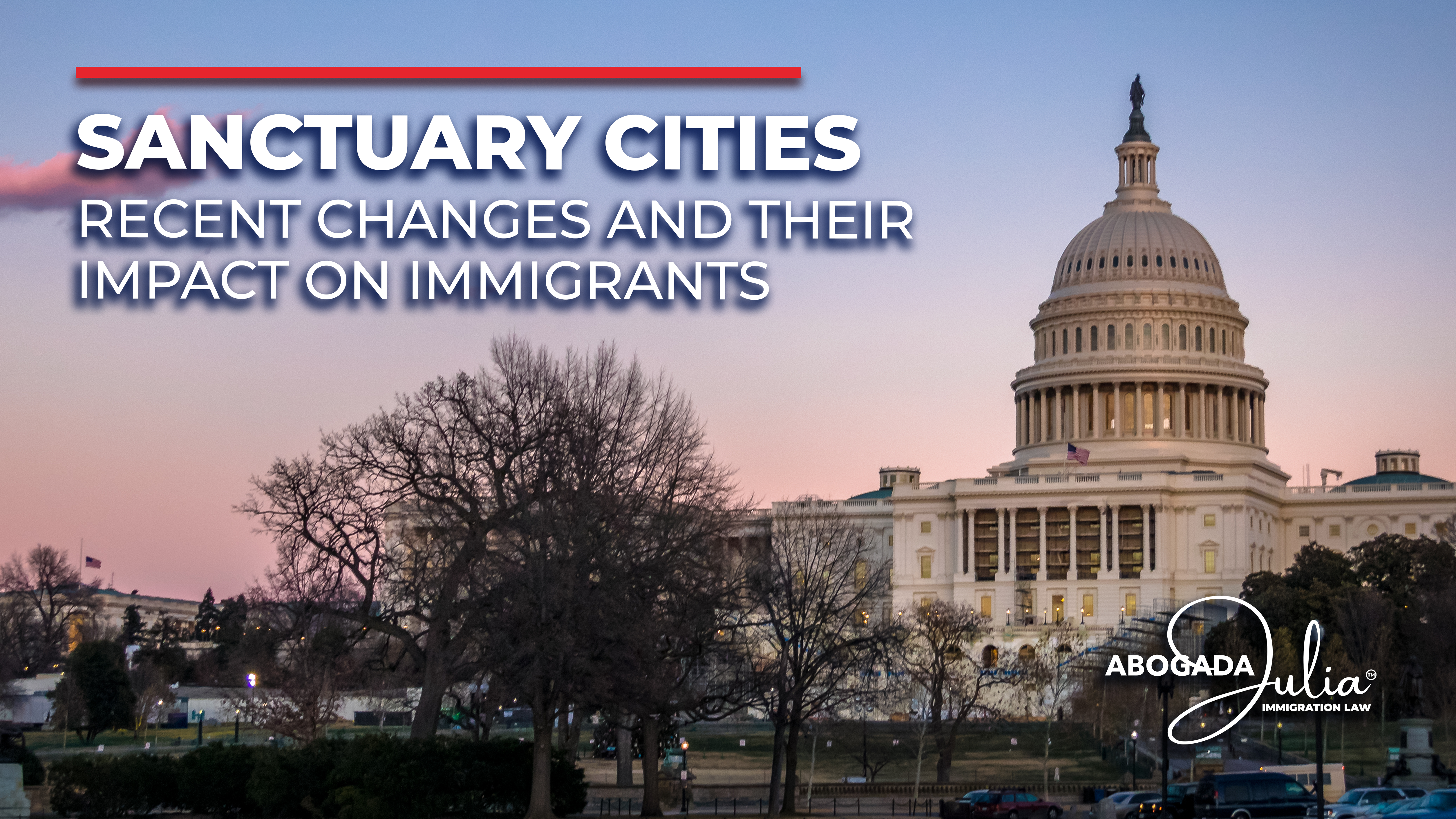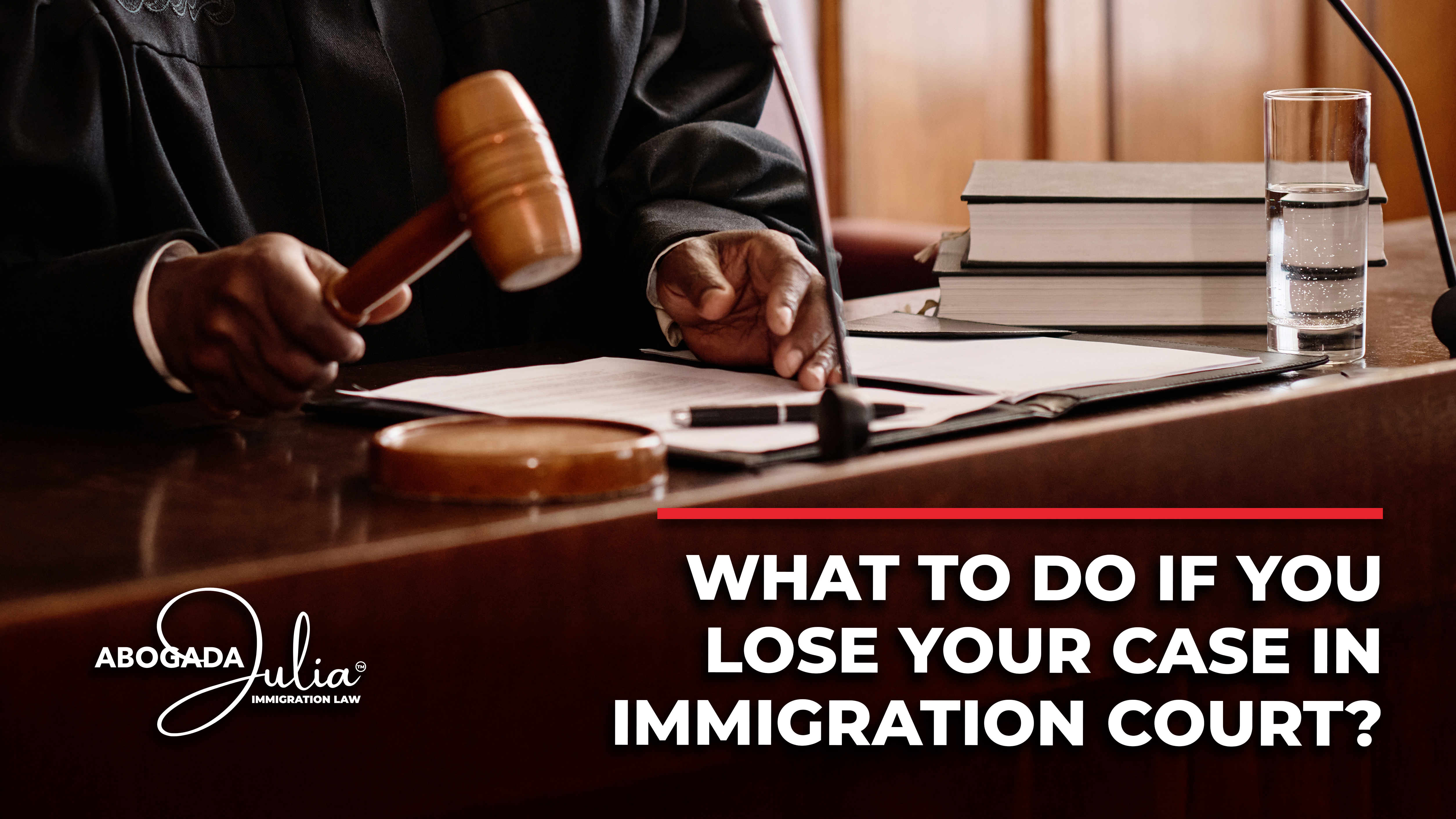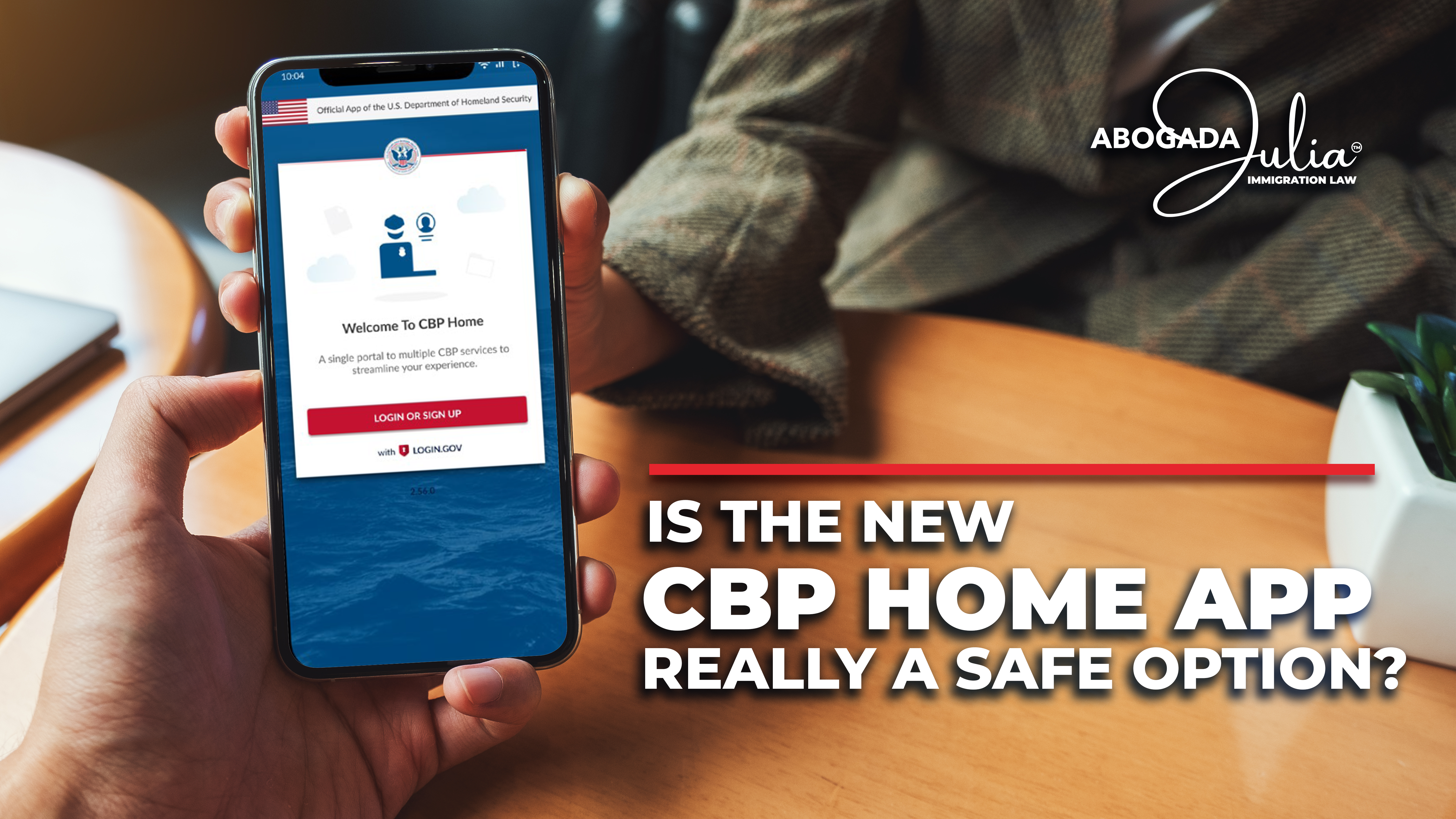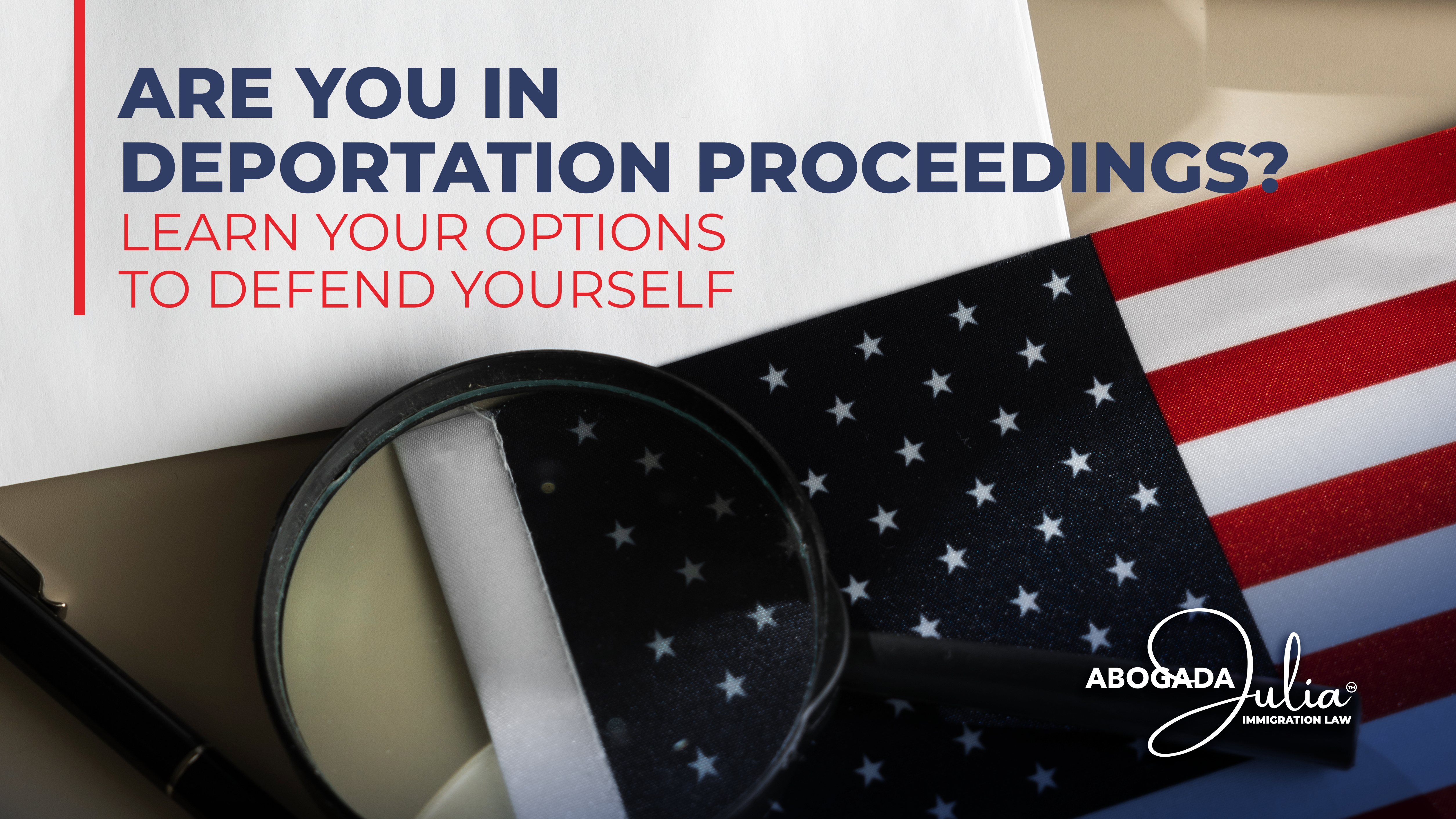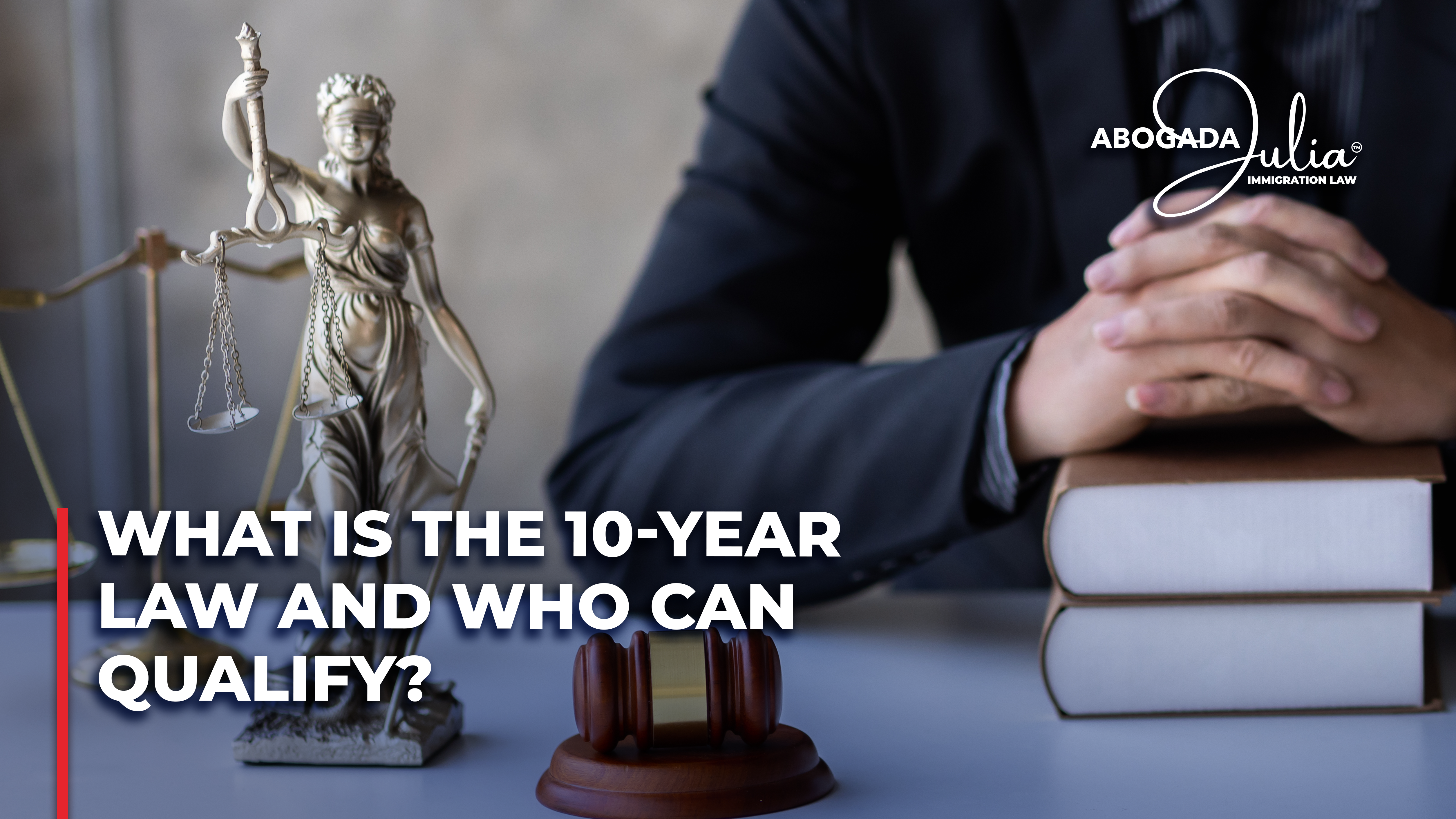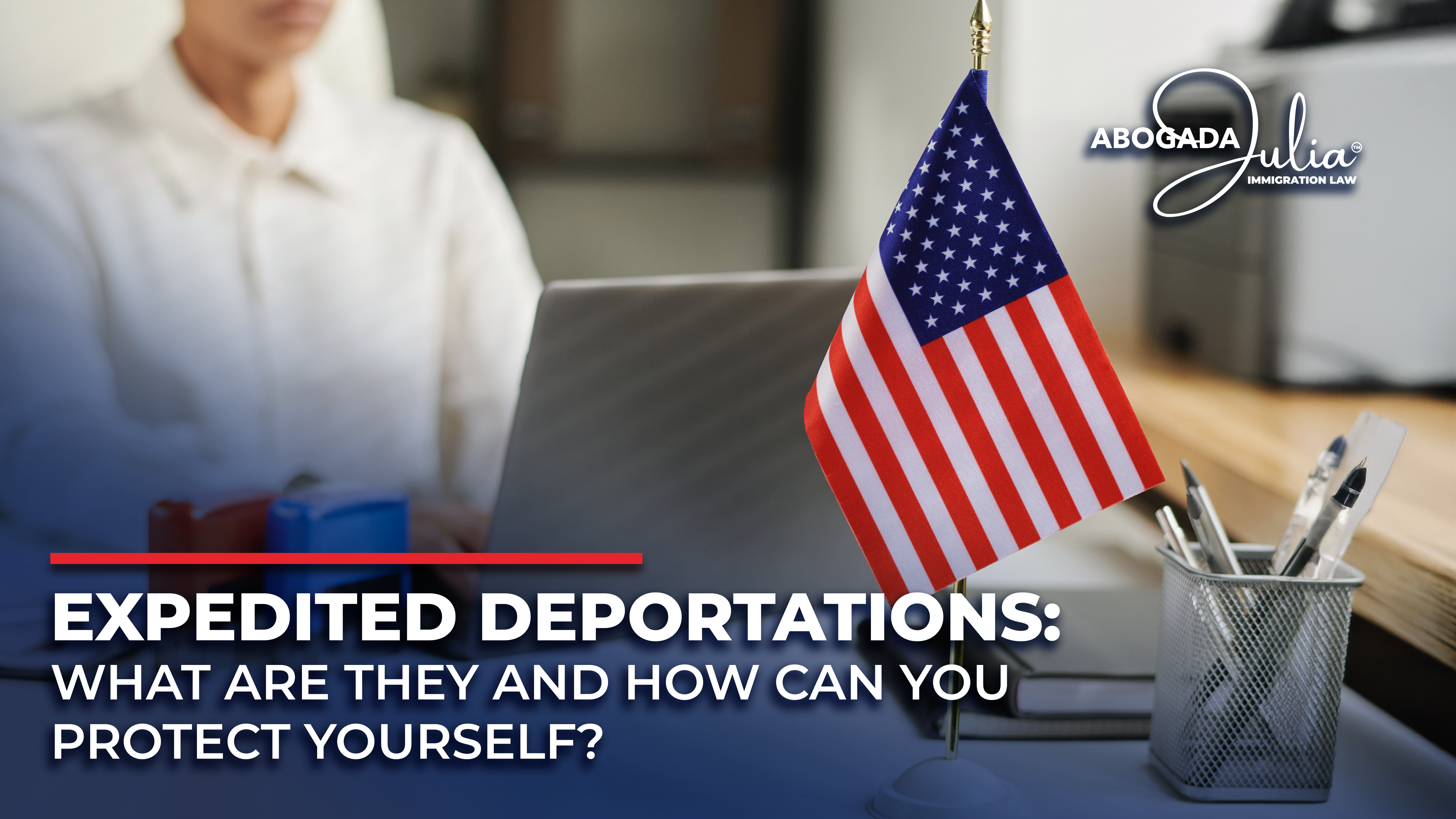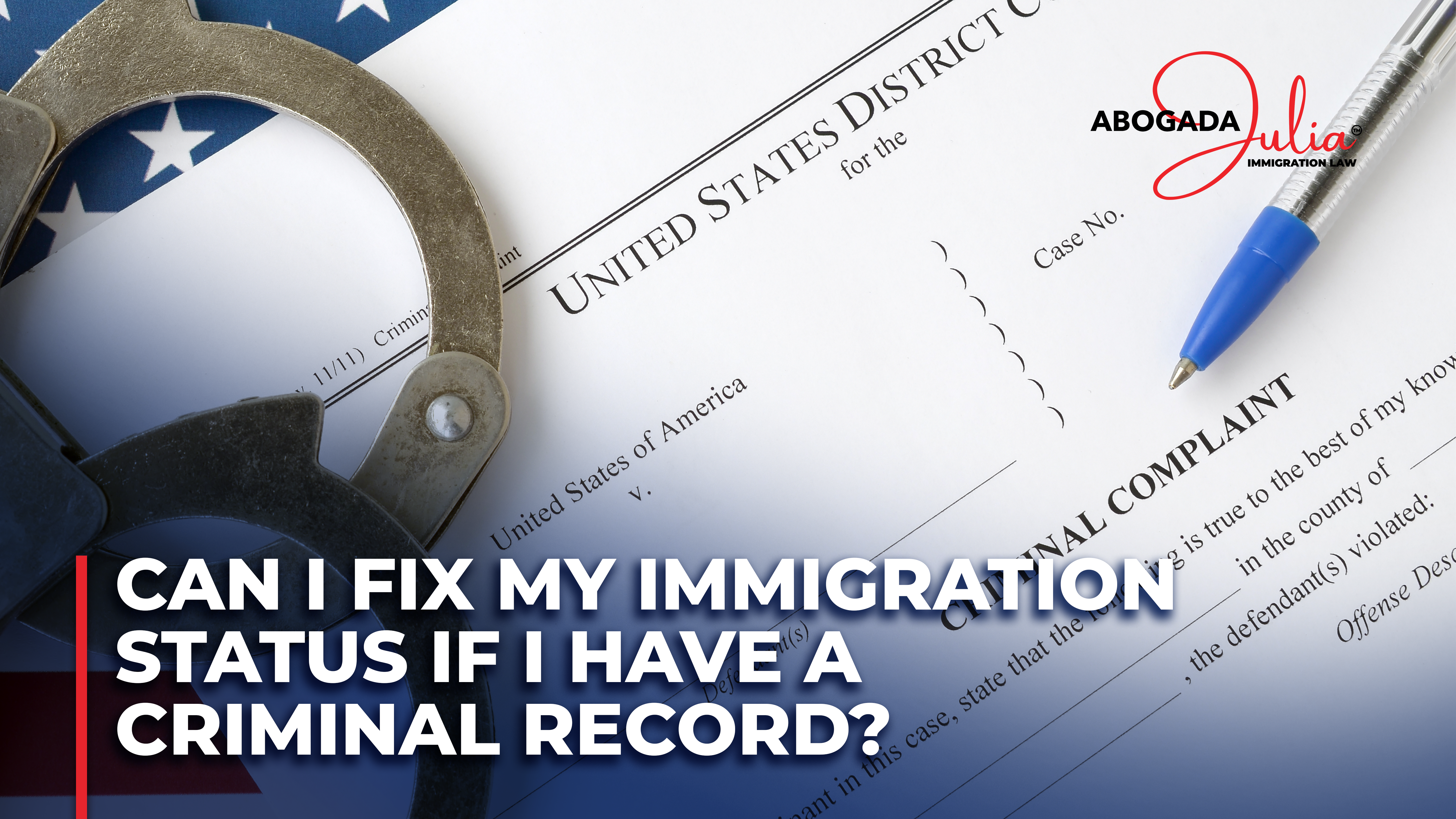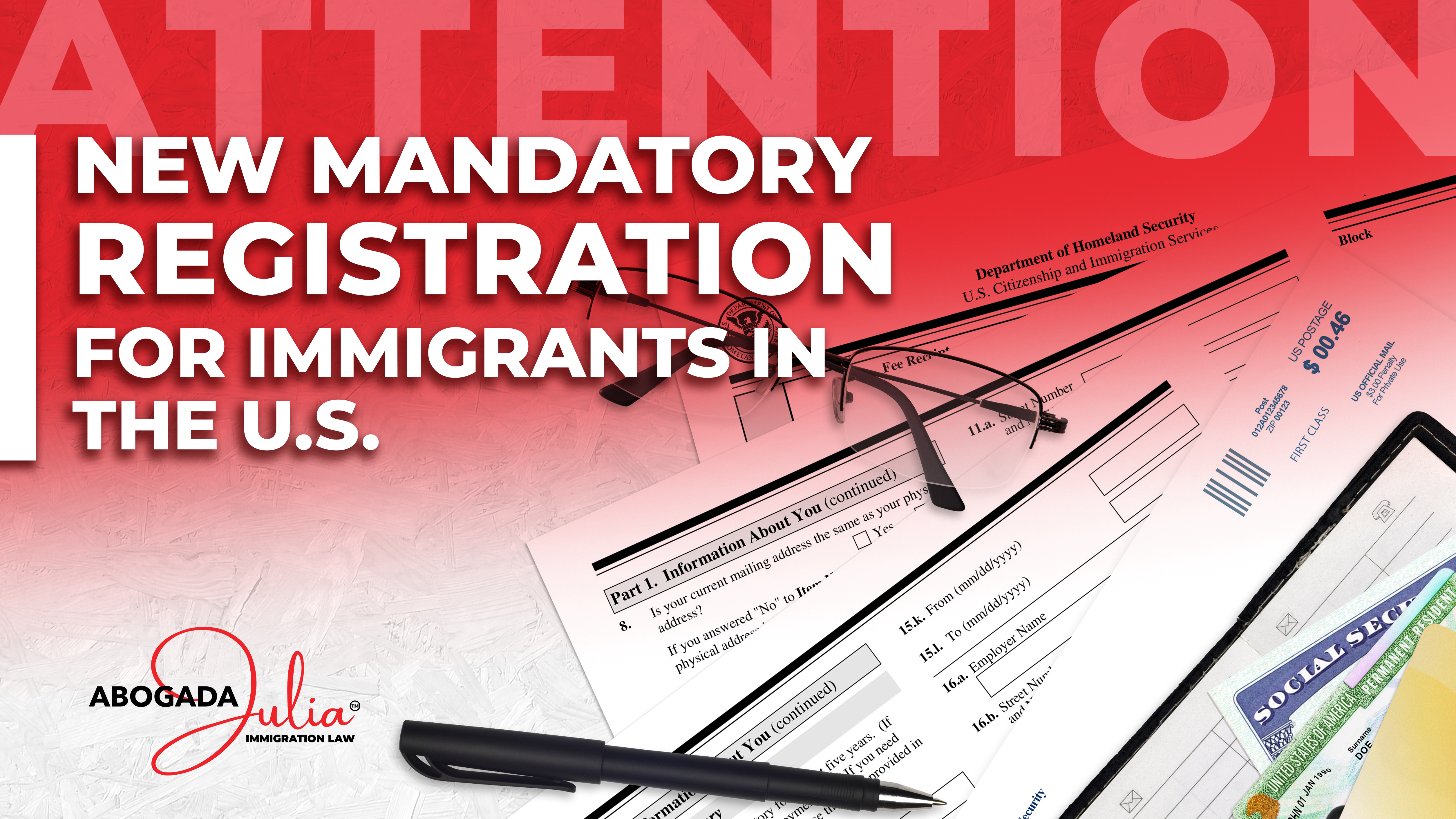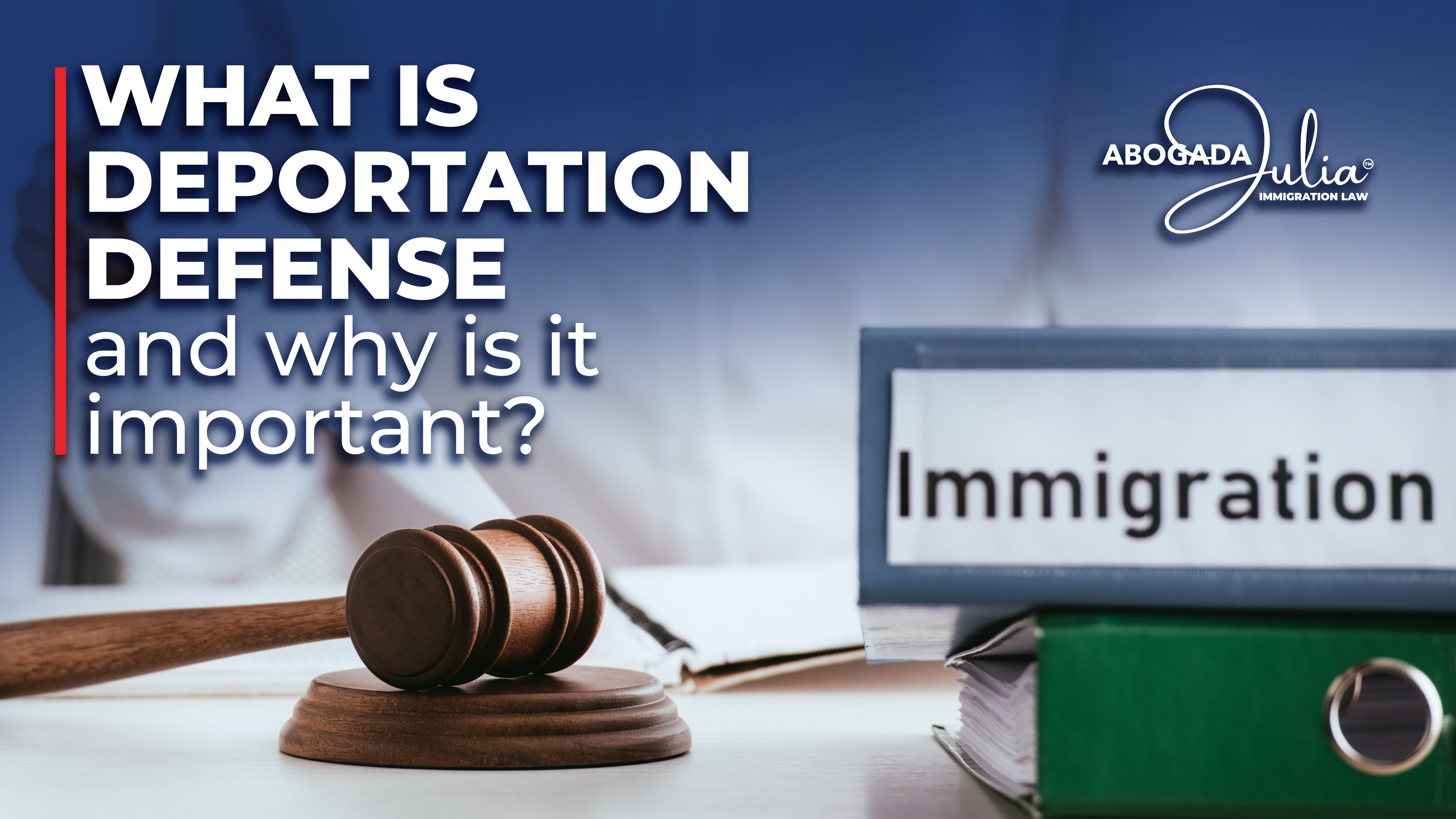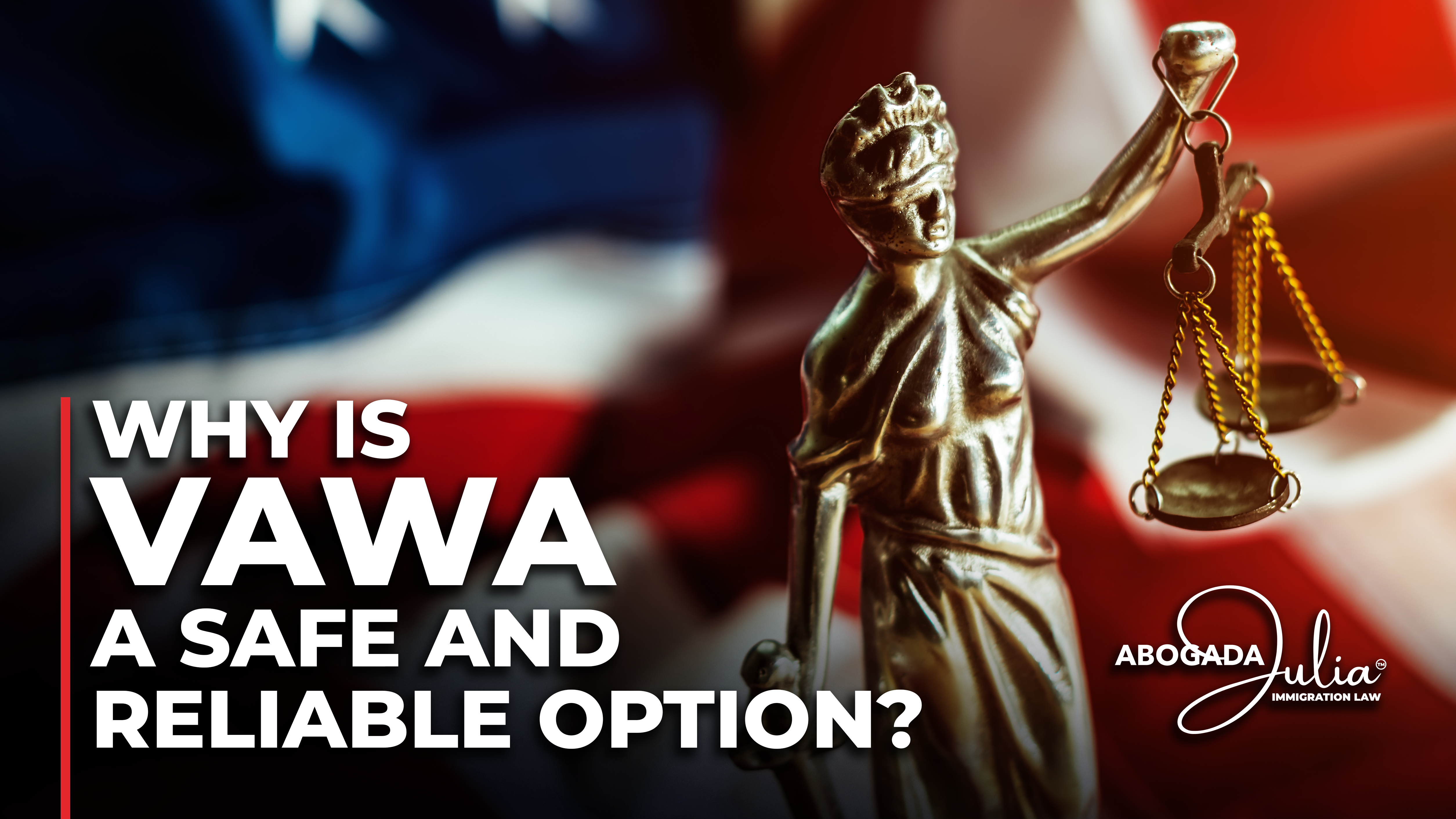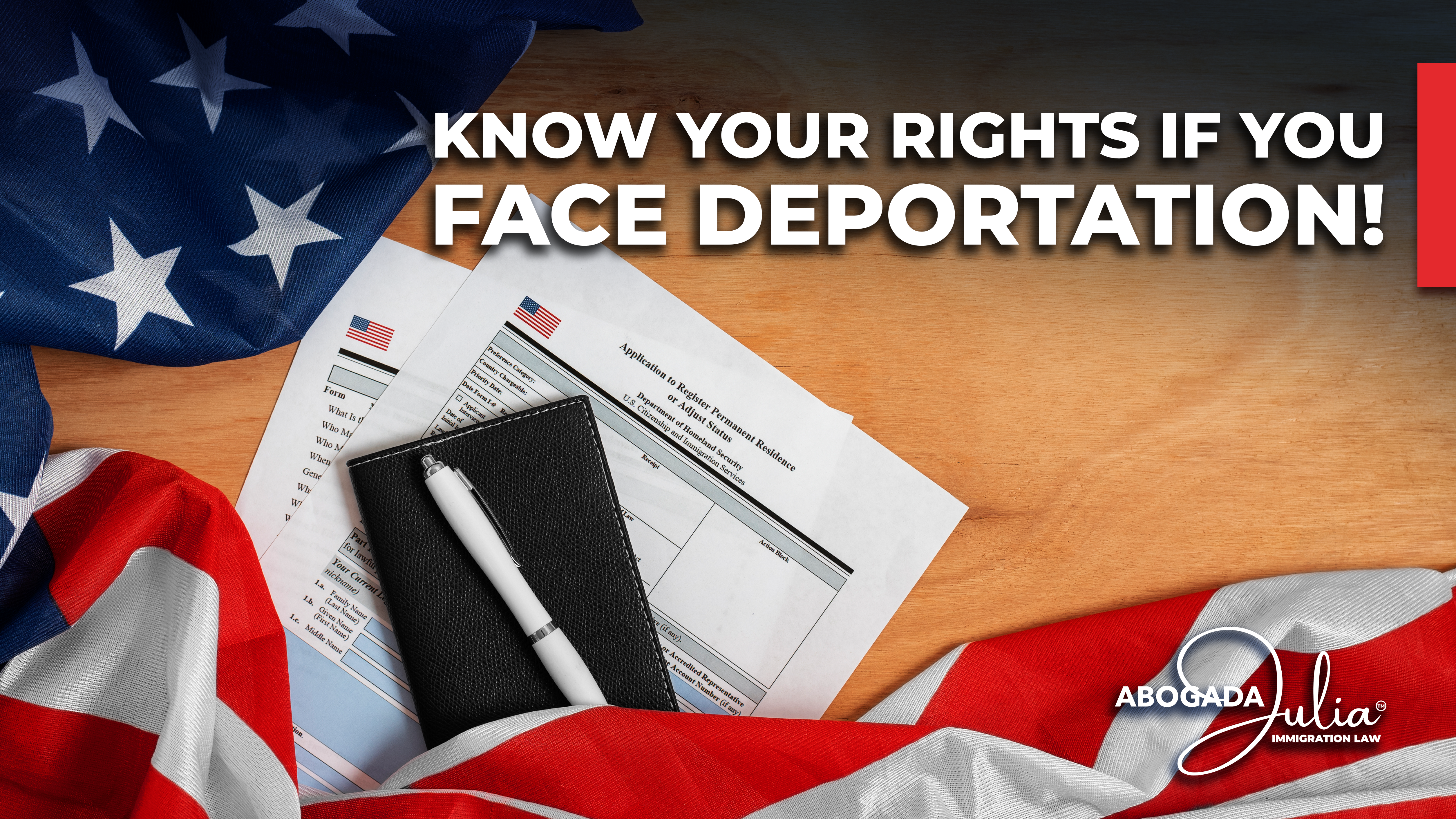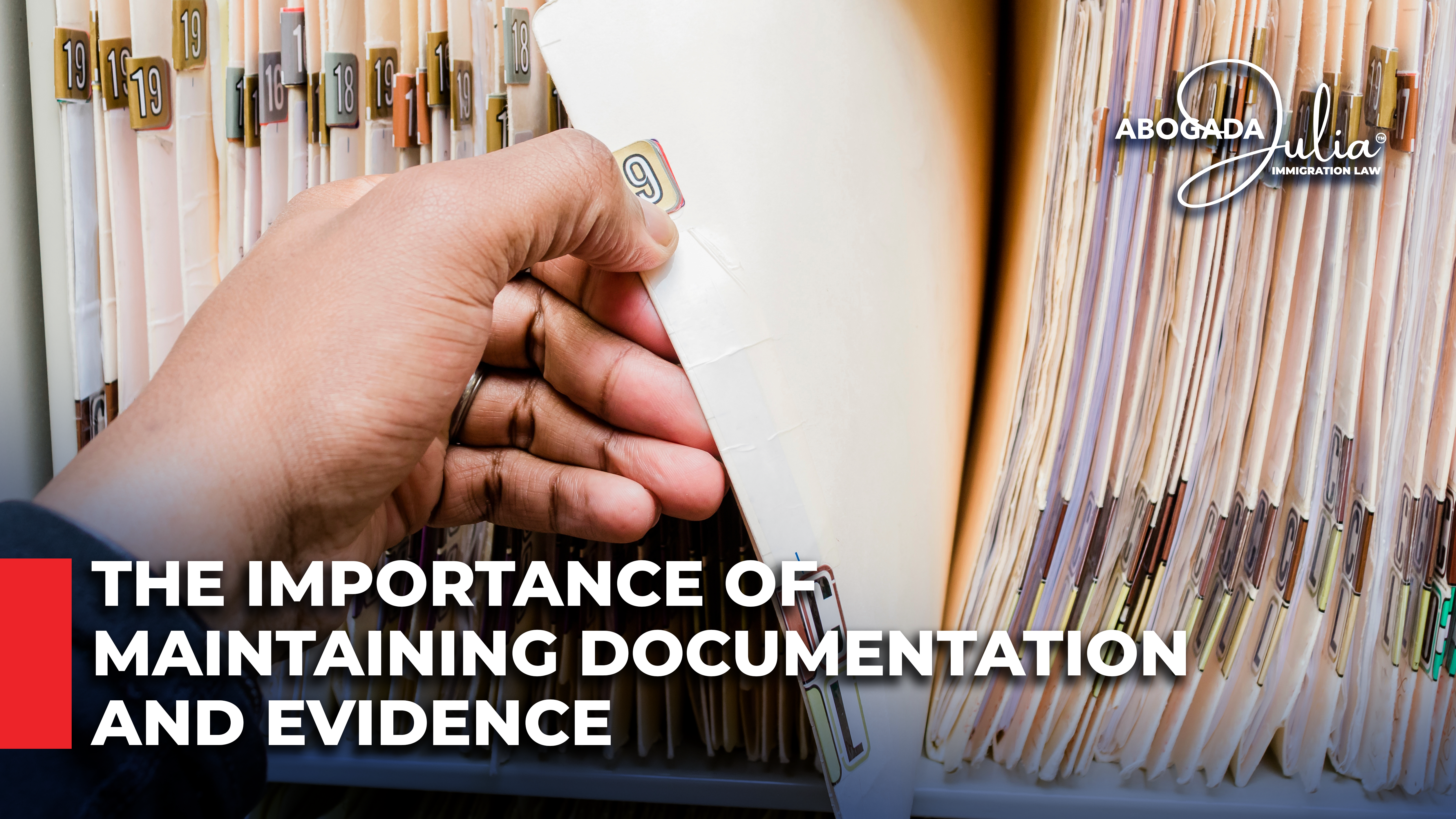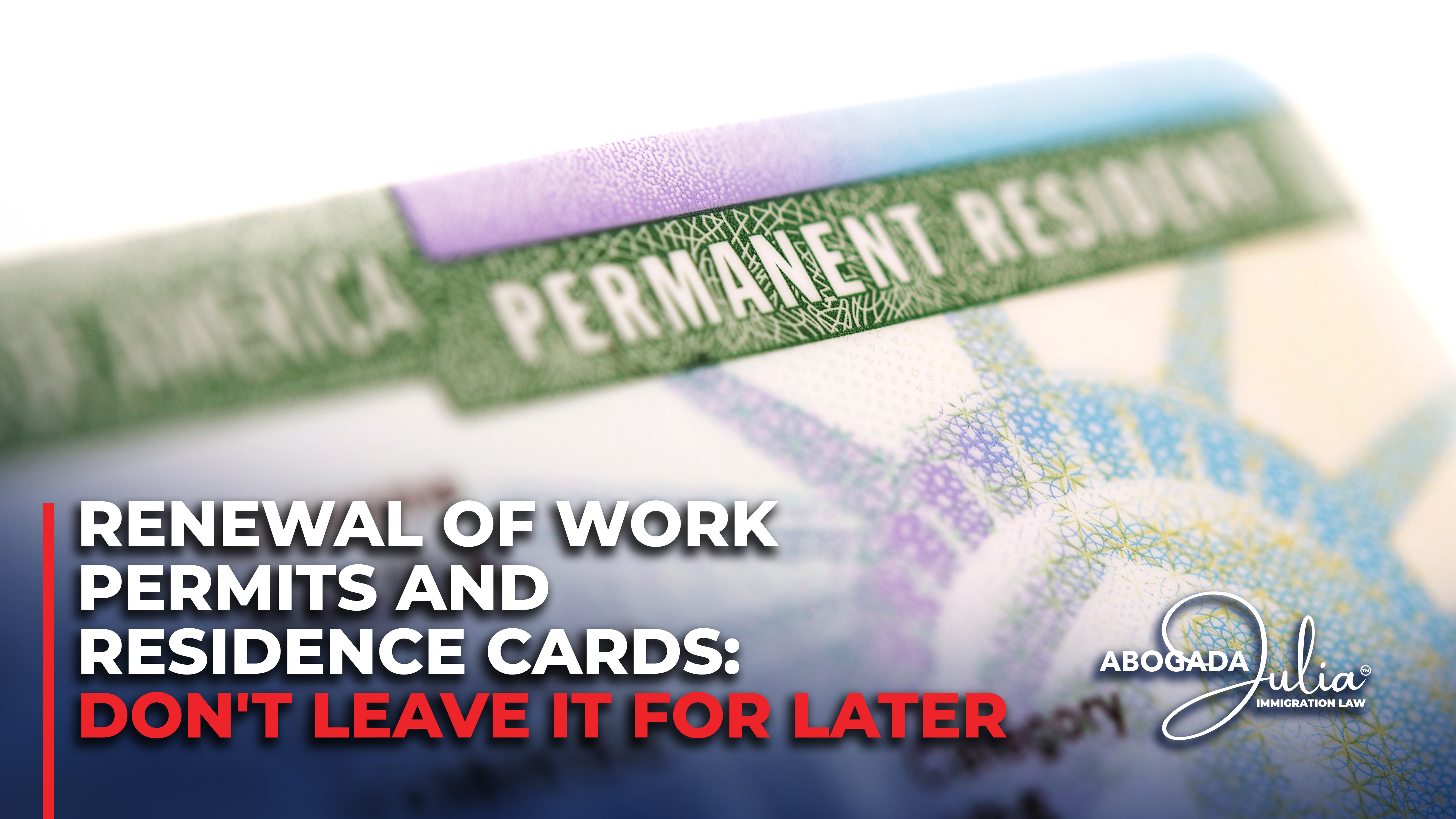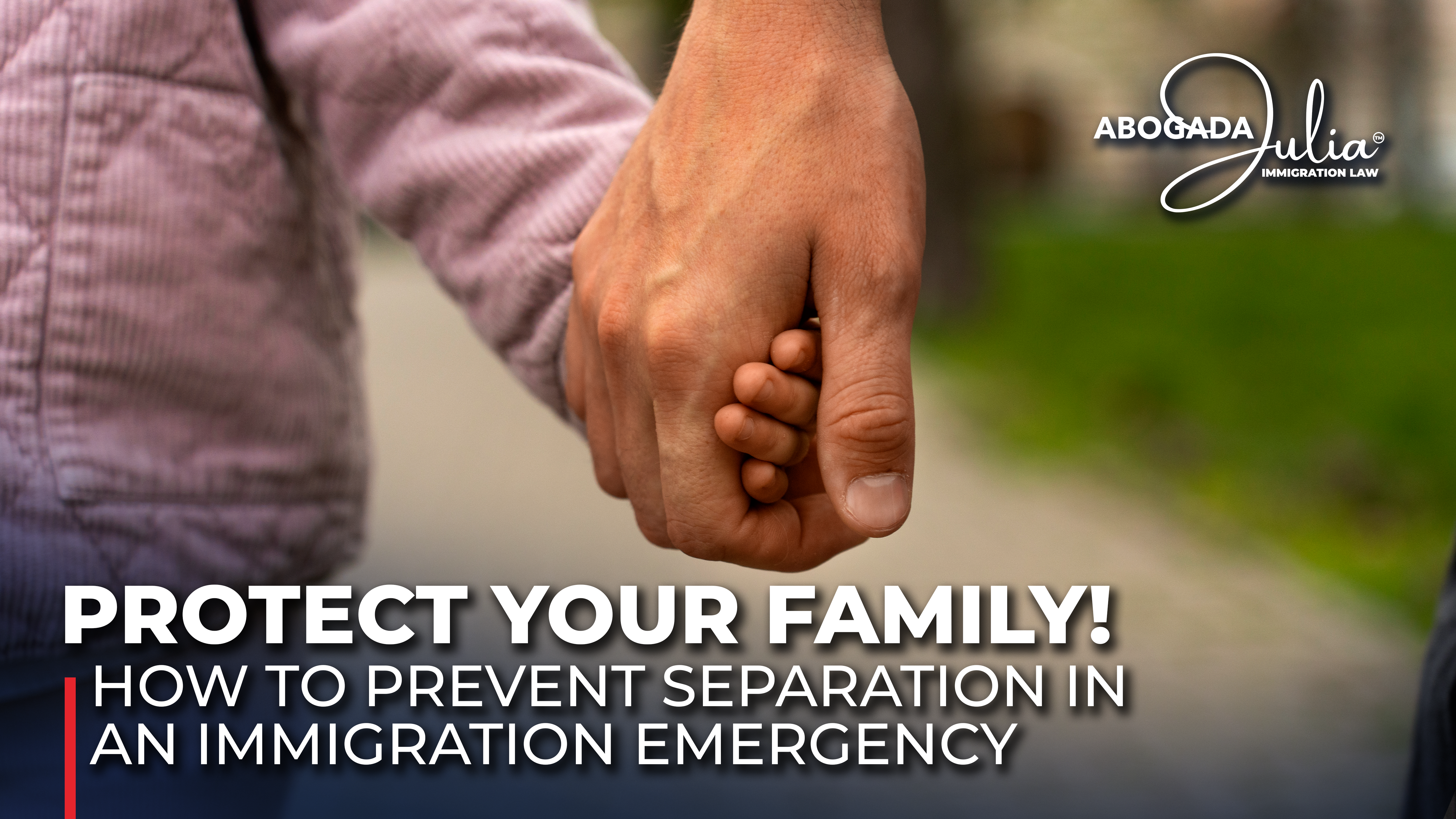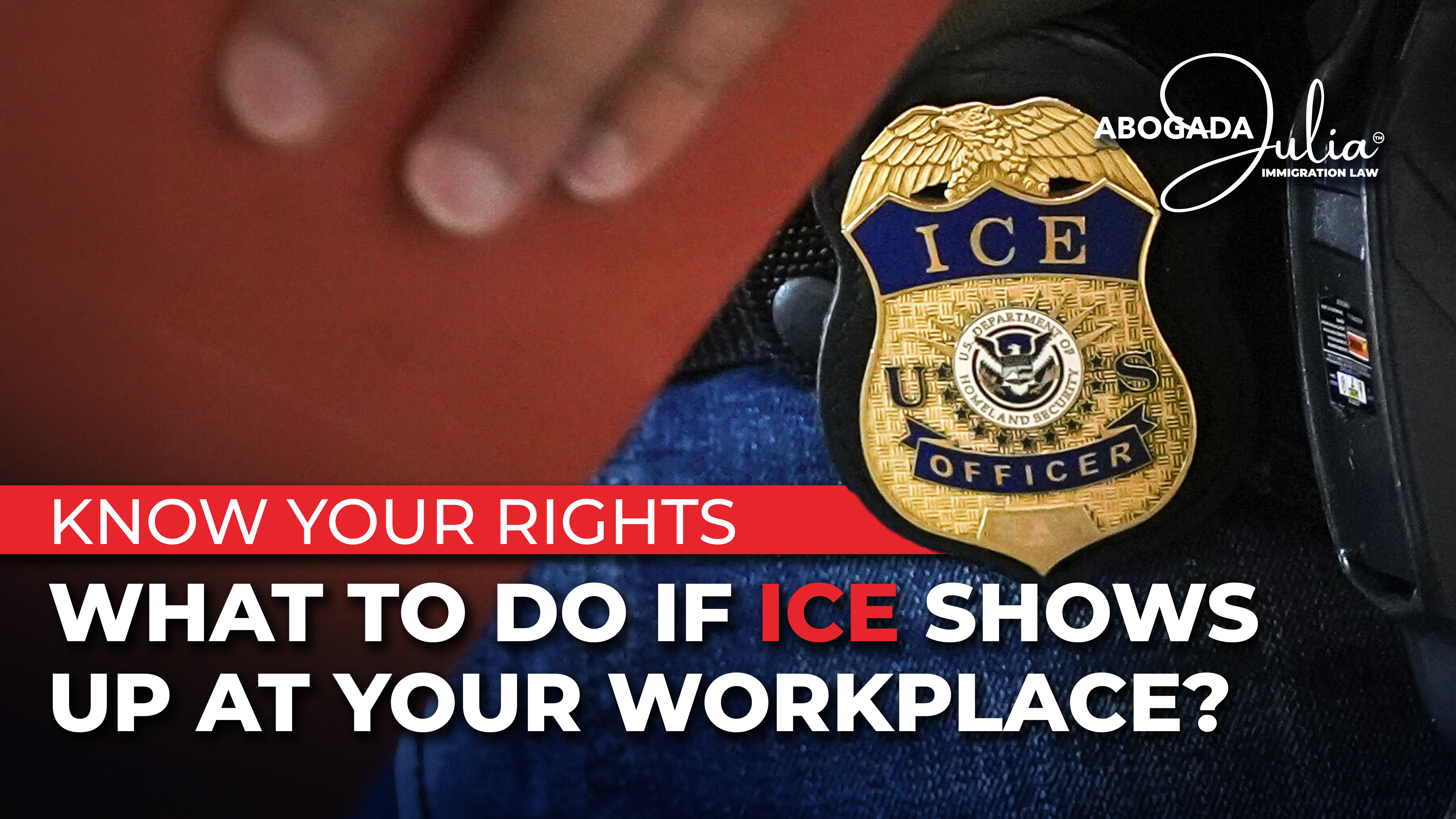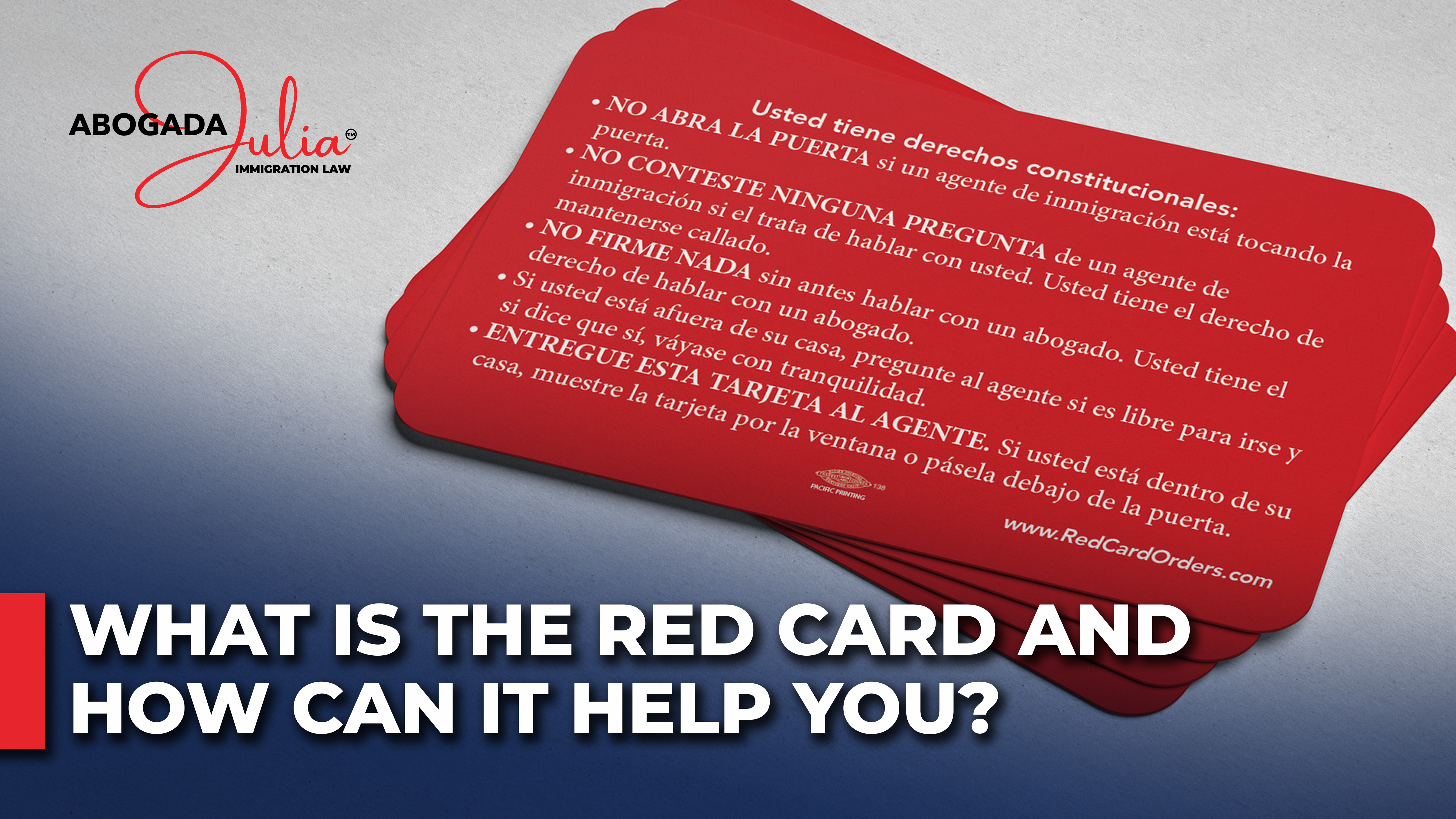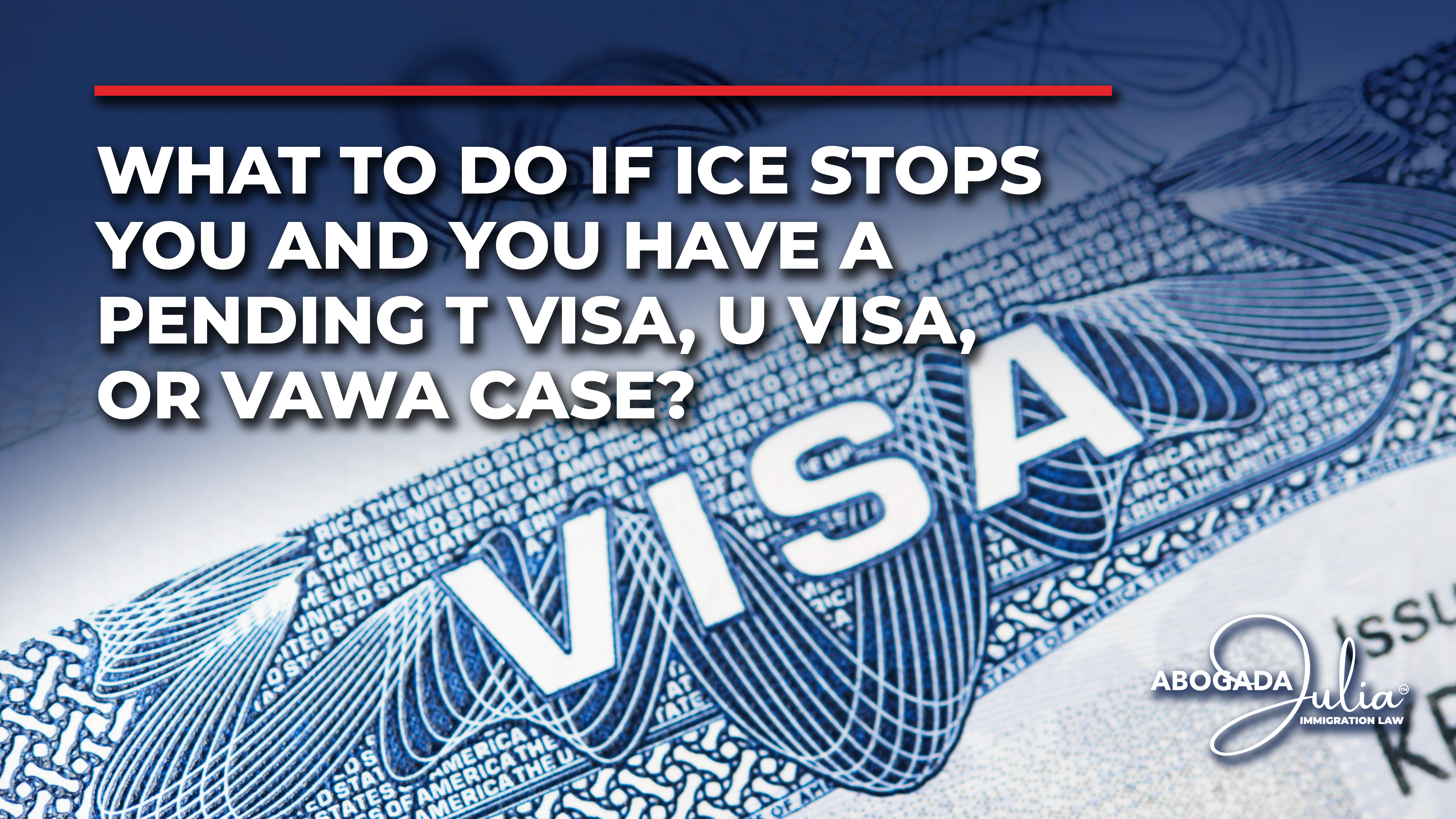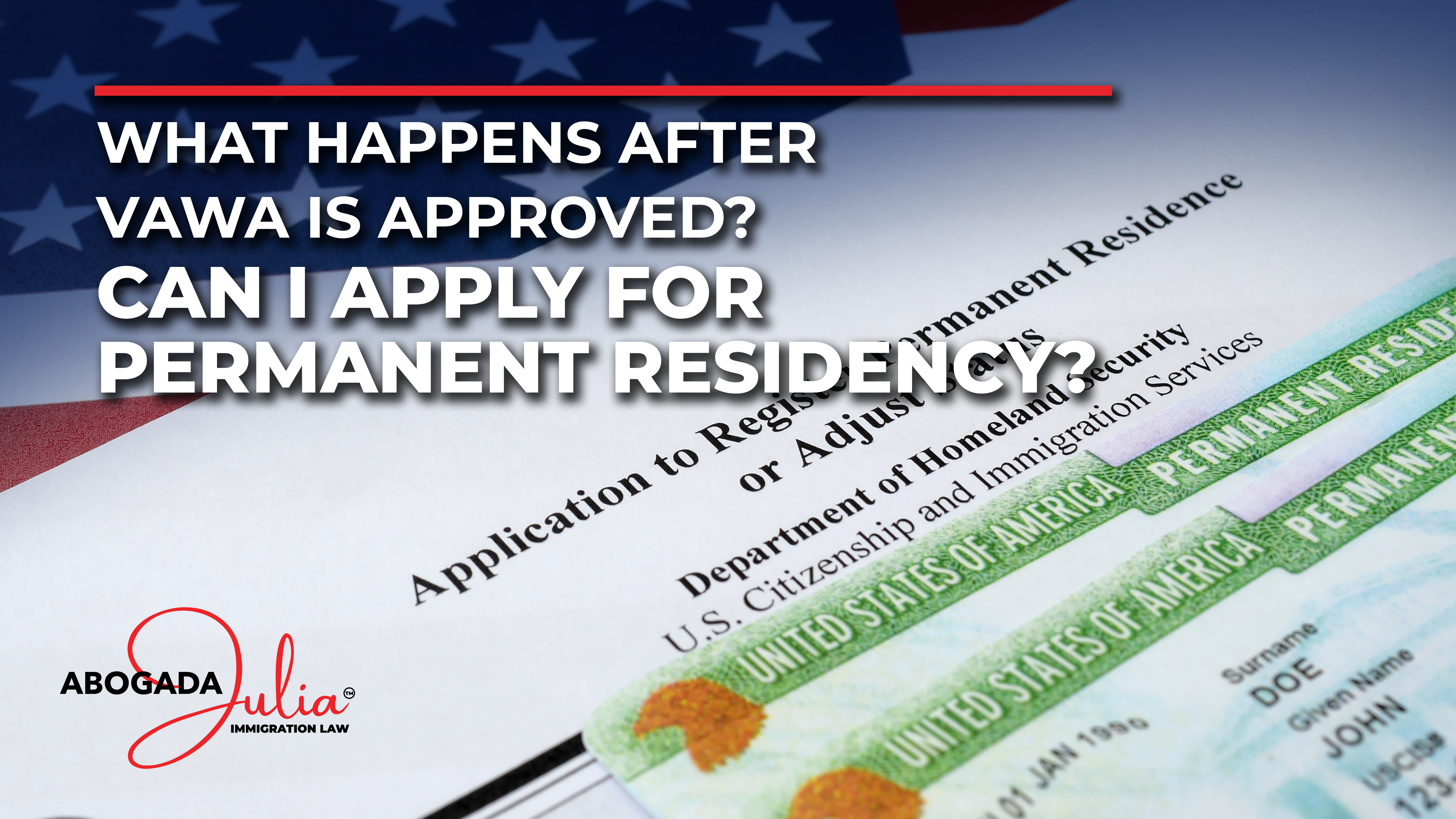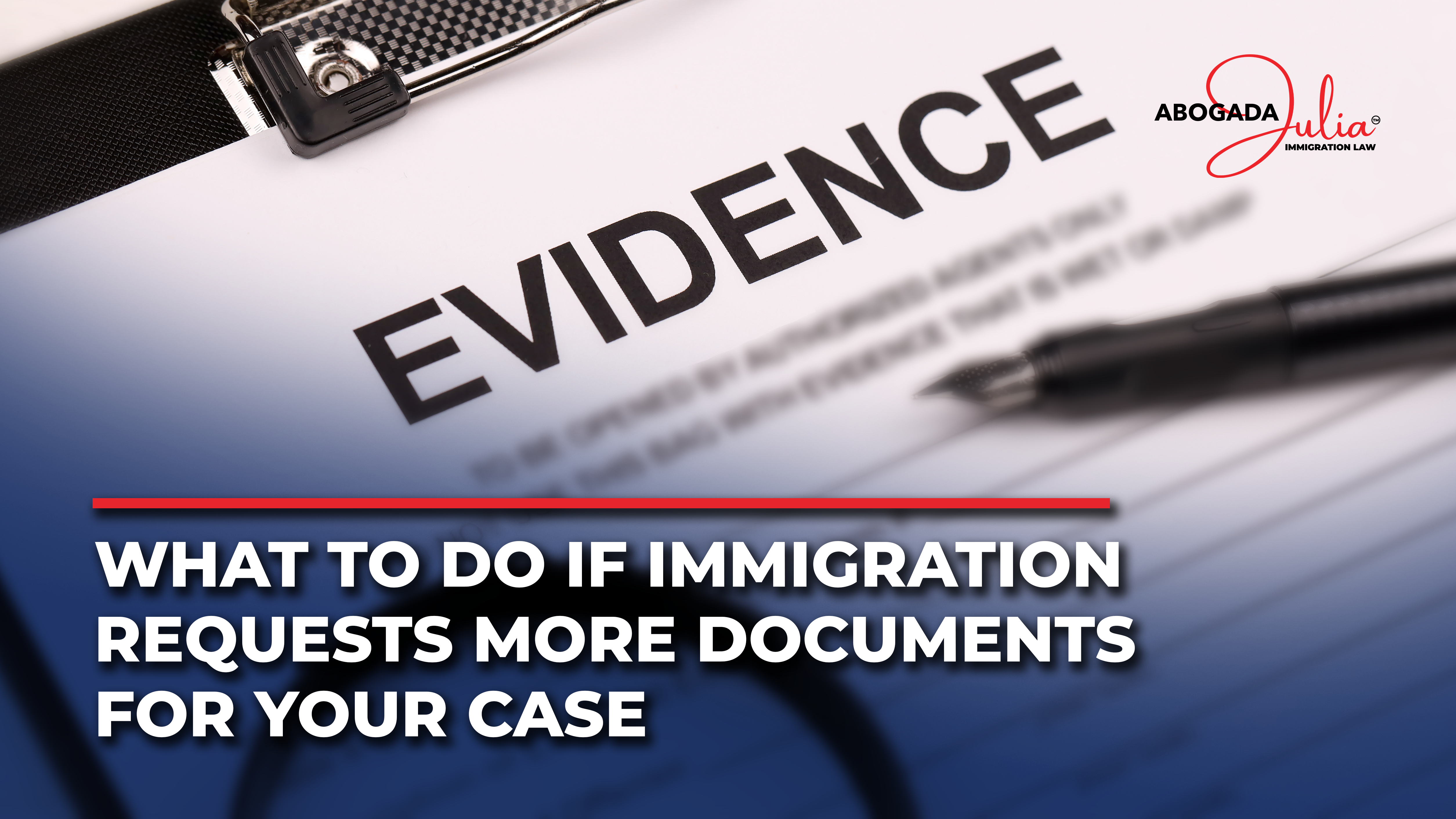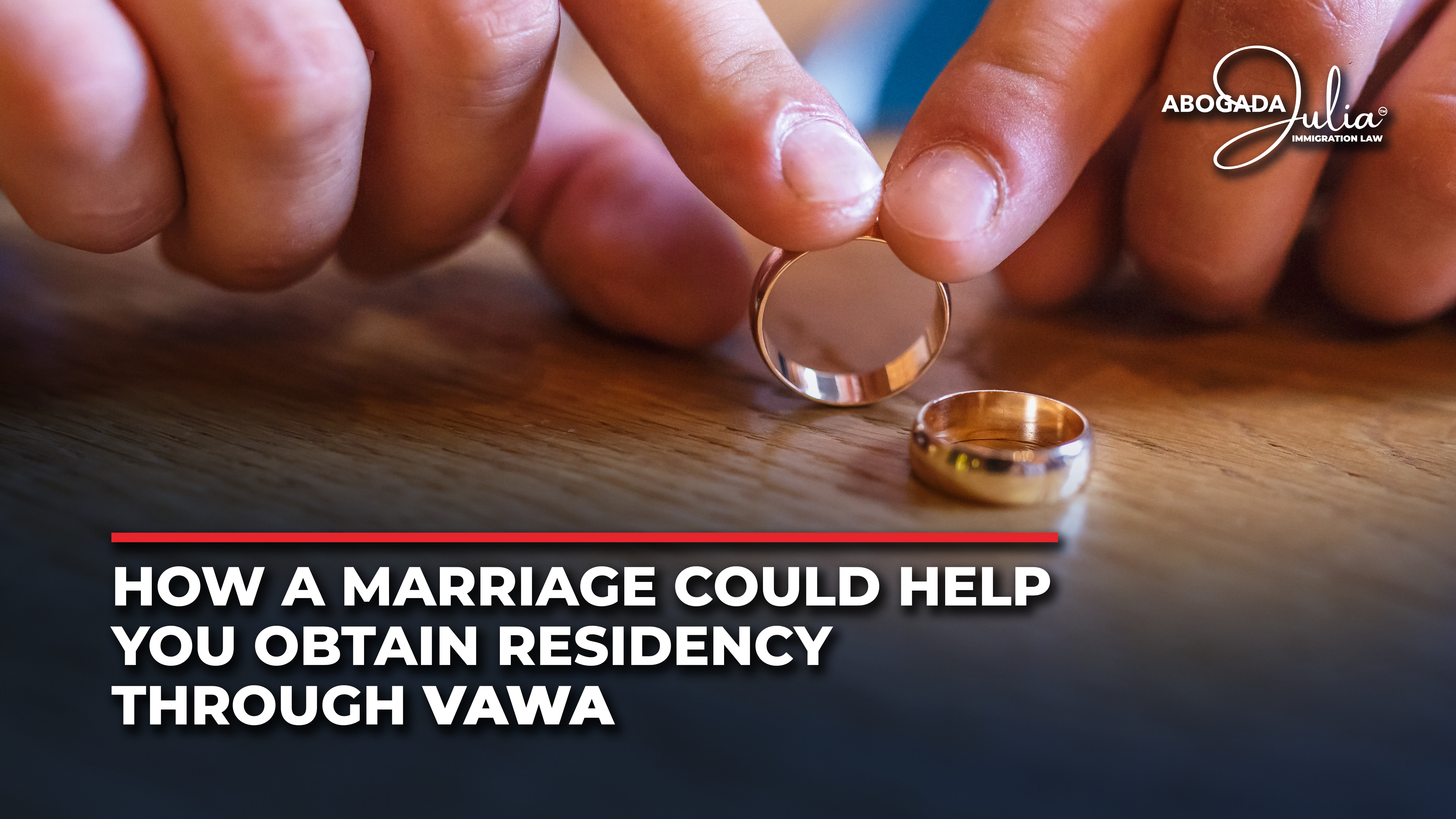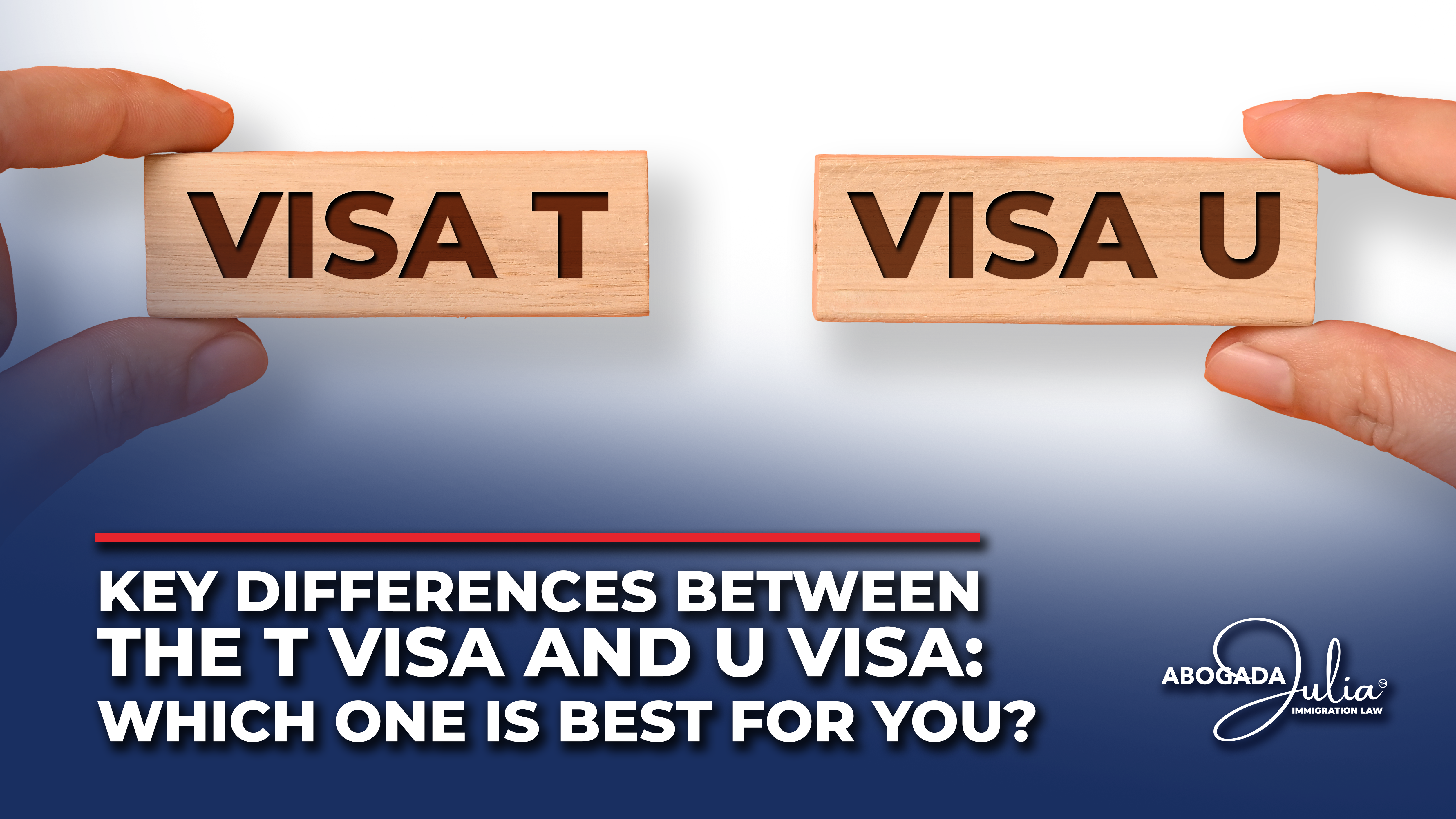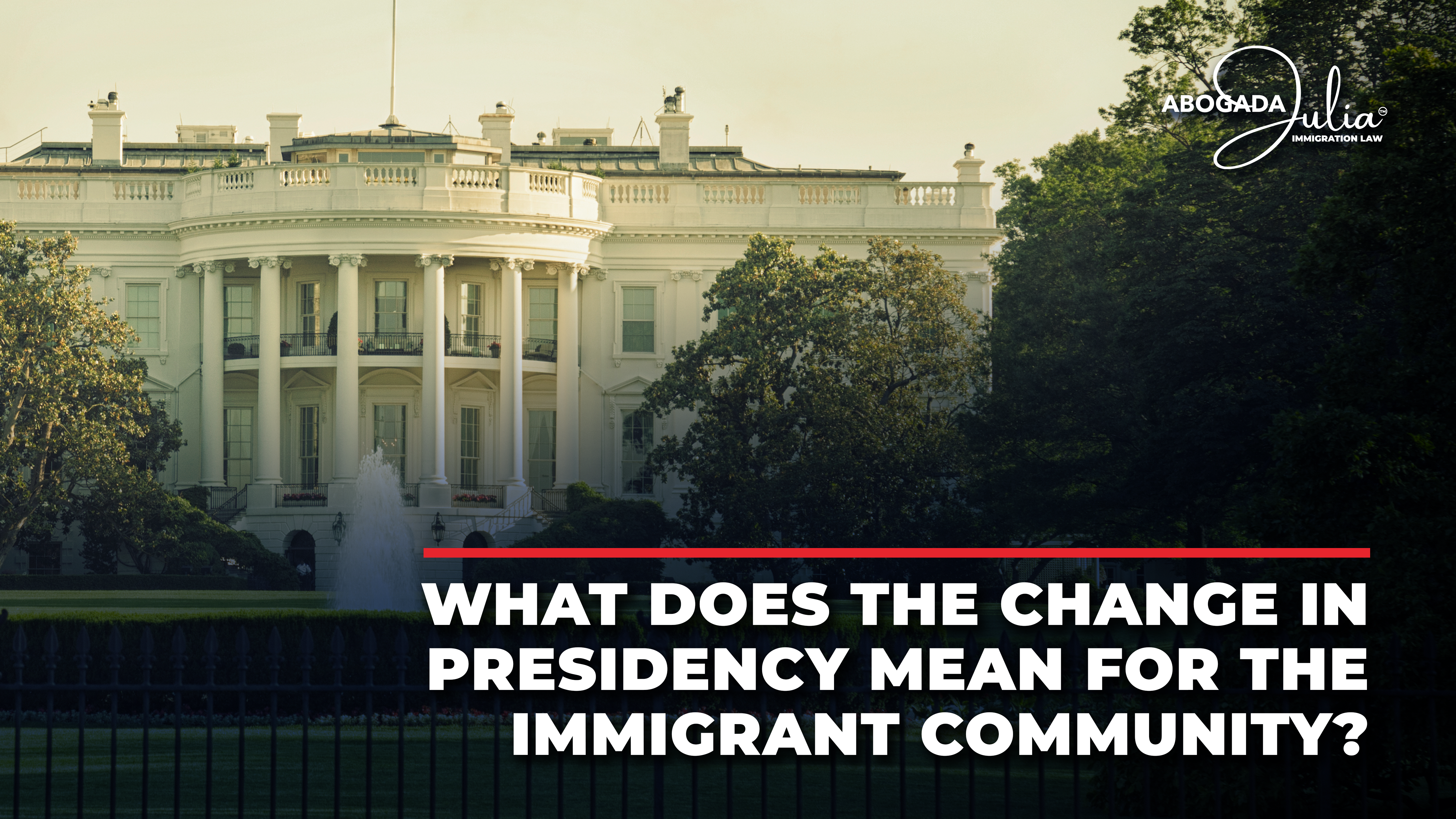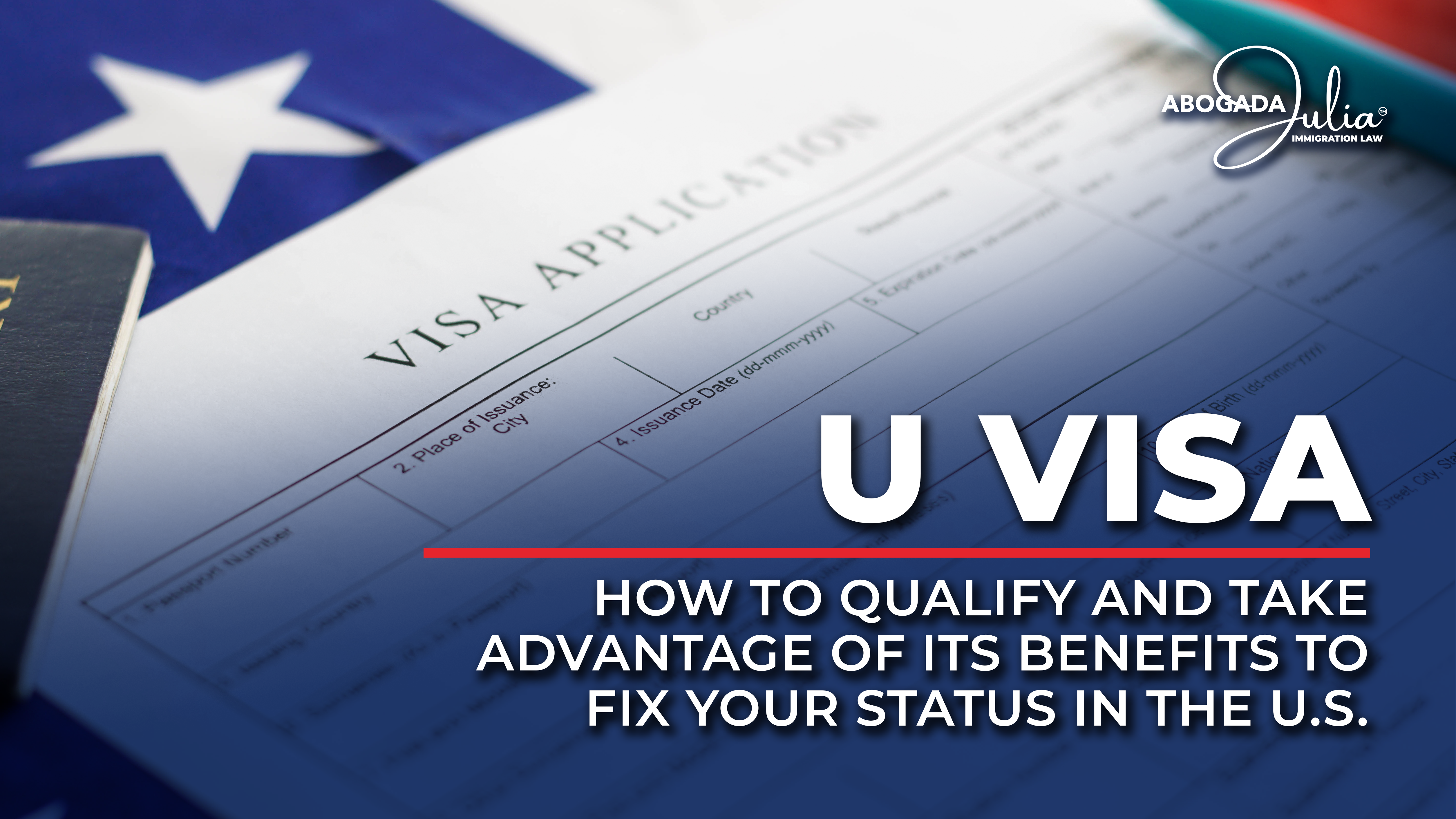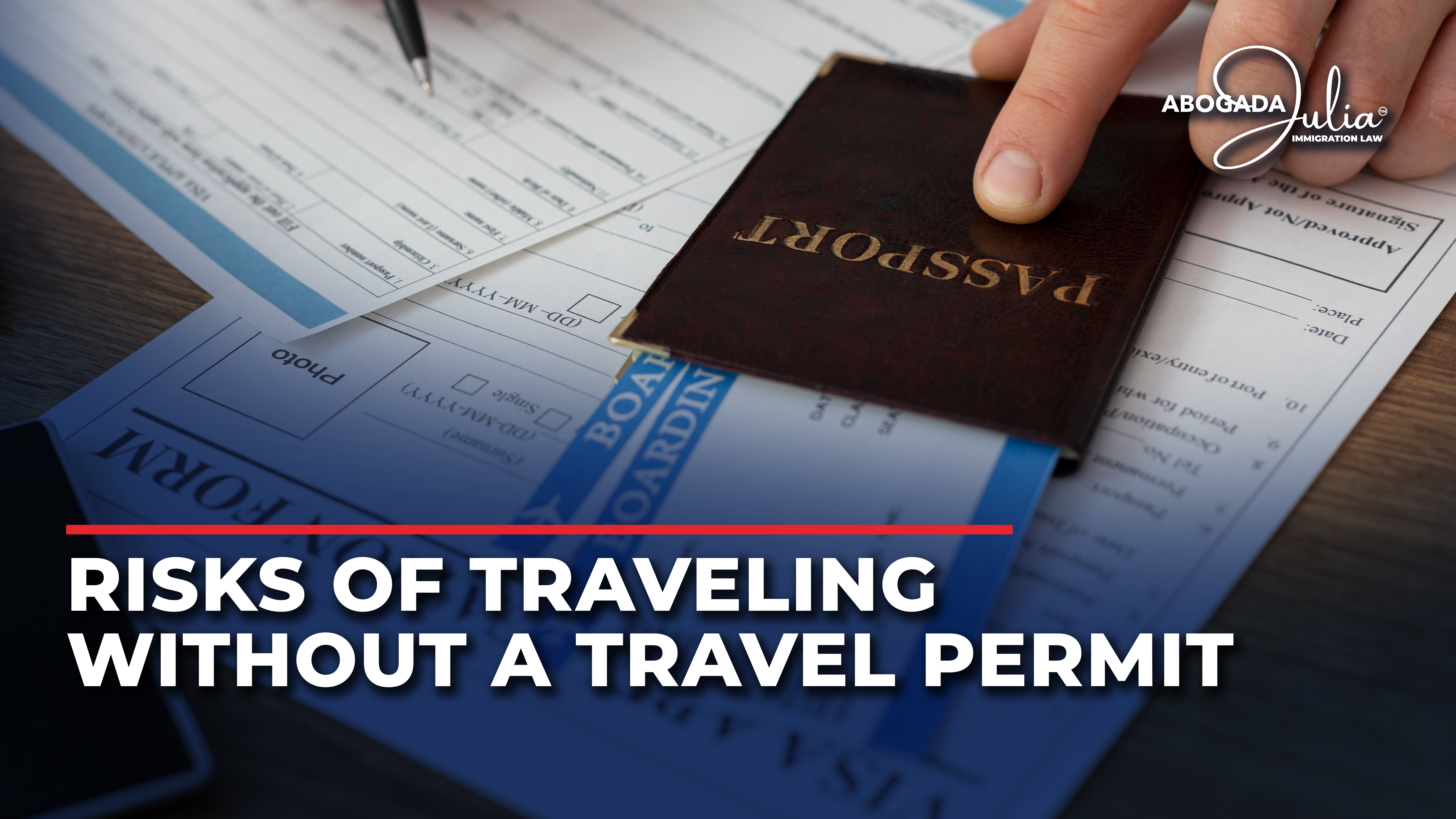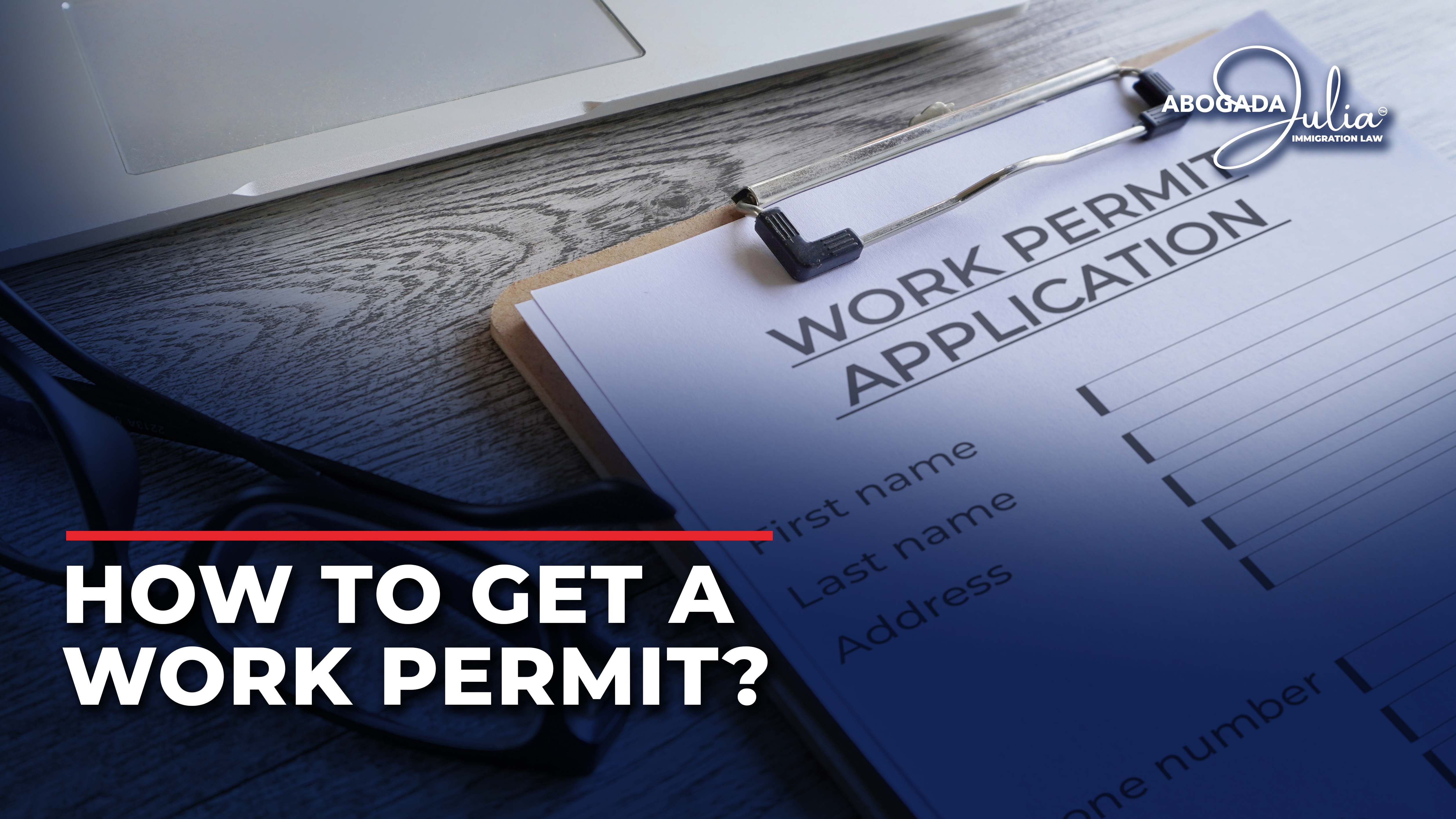Blogs
Welcome to our immigration resource center. Here, you’ll find useful information to help your journey toward getting legal status in the U.S.
Immigration Pills
"Knowledge is power." With this phrase in mind, Abogada Julia has created Immigration Pills; a short and direct series where she shares important information about immigration.
From your rights to the steps you need to take, you will find key information that will help you make informed and confident decisions.
EVEN WITHOUT PAPERS, YOU HAVE RIGHTS™
Temporada 3
Season 2
Season 1
Media Center
- EY Entrepreneurial Winning Women North America Class of 2023: https://www.ey.com/en_ca/entrepreneurial-winning-women-north-america/class-of-2023
- Newsweek:https://www.newsweek.com/ron-desantis-human-trafficking-risk-florida-immigration-1822185
- El Nuevo Herald: https://www.elnuevoherald.com/noticias/inmigracion/article273254245.html
- The Florida Herald: https://www.thefloridaherald.com/article/608383570-gf-immigration-law-now-promising-to-give-money-back-to-clients-if-they-don-t-win-their-case
- The Women’s Fund Miami-Dade – Panelist: Human Trafficking: Restoring Restorative Justice VIRTUAL IMPACT COLLABORATIVE https://womensfundmiami.org/blog/replay-human-trafficking-restoring-restorative-justice-virtual-impact-collaborative/
- ACCESSWIRE: https://www.accesswire.com/746504/abogada-julia-empowers-immigrants-in-miami-and-across-the-country
- CBS4:https://cbs4indy.com/business/press-releases/ein-presswire/608383570/gf-immigration-law-now-promising-to-give-money-back-to-clients-if-they-dont-win-their-case/
- NewsWires: https://www.einnews.com/pr_news/587717536/success-stories-seen-by-abogada-julia-keeps-her-fire-going
- Fox5 San Diego: https://fox5sandiego.com/business/press-releases/ein-presswire/598330398/gf-immigration-law-helping-immigrants-who-have-been-smuggled-across-the-border/
- ACCESSWIRE: https://www.accesswire.com/viewarticle?id=746504&lang=es
- Univision Contigo Orlando: https://www.youtube.com/watch?v=C8QIkYHaqPw
FAQs
What is the T Visa and who qualifies? 📹
The T Visa is an opportunity for individuals who have endured very difficult situations, such as:
- being exploited at work,
- being forced by their employer to work more than others,
- having their pay cut or not being paid overtime,
- being taken advantage of for not having papers,
- being promised payment if they kept working, but that promise was not fulfilled,
- being threatened with a call to immigration,
- being humiliated, discriminated against, insulted, or told to "go back to your country,"
- being paid 60% less than others
Also, if you have been abused or forced to work by those who helped you cross the border, you may qualify.
It’s not just about being forced to work; it can also include situations where you were brought to this country with promises of a better life, but the conditions turned out to be very different. For example, if you were brought to the EEUU with false promises of work, and once here, the job or living conditions were not as promised, whether by a family member, friend, or employer, and you didn’t feel free to leave or exercise your rights, you may qualify.
Additionally, if you have lived in an abusive relationship in this country where you didn’t have freedom, felt controlled, in danger, or were here against your will, you could also qualify for the T Visa. This visa also helps people who have been victims of sexual exploitation.
These are just a few examples of situations that qualify for the T Visa. It doesn’t matter if these events happened a while ago, as long as they occurred after your last entry into the U.S. or if your last entry is connected to those events.
How can the T Visa help me if I am a victim of domestic violence?
This visa gives you the opportunity to live and work legally in the United States, helping you move away from those difficult situations. If you are living or have lived in situations at home where you feel controlled, threatened, or forced to do things against your will, you may qualify. In these cases, you do not need a police report or to be married to a partner with legal status to qualify.
What is VAWA and how do I know if I qualify? 📹
VAWA is a self-petition that provides protection from immigration, confidentiality, and the opportunity to adjust your immigration status independently for those who have experienced family issues such as control, abuse, or threats. Physical evidence, like police reports, is not required to qualify.
Who is eligible?
- People married to U.S. citizens or legal residents.
- People divorced from a U.S. citizen or legal resident within the last 2 years.
- Widows or widowers of a U.S. citizen who passed away less than 2 years ago.
- Parents of U.S. citizen children who are over 21 years old.
- Children under 21 years old of a U.S. citizen.
Both men and women can qualify. The petition is confidential and does not involve any family members. It is not necessary to divorce your spouse to qualify, and a police report is not required, as your statement of what happened is the most important evidence.
There are situations within the home that may seem normal to the family, but the law can view them as "problems" that may qualify for a VAWA case. Many people don’t realize that certain family situations can qualify for this type of case. Family issues can include, for example, financial and personal control, disdain, threats, intimidation, sexual control, yelling, insults, excessive jealousy, and physical abuse.
Family issues with children can also manifest as disrespect, rebellion, substance use (like alcohol or drugs), manipulation, or mocking you for not speaking English, your lack of education, or general knowledge. This mistreatment may extend to being forced to do unwanted things, feeling threatened or intimidated.
Some examples of situations that could qualify:
- Not having access to your own money.
- A partner constantly checking your location.
- A partner sharing and controlling your social media.
- Withholding your passport or making immigration-related threats.
- Sexual control in the intimate relationship.
- Yelling, insults, or excessive jealousy where they constantly monitor your social media or isolate you from friends and family.
- Rebellious children.
- Not having access to your own money.
- A partner constantly checking your location.
- A partner sharing and controlling your social media.
- A partner who takes your documents or threatens to call immigration.
- Sexual control in the intimate relationship.
- Yelling, insults, jealousy, or humiliation
- A partner who doesn’t let you have friends or talk to your family.
- Rebellious children.
However, every family dynamic is different, and these are just a few examples. There are many other family situations and dynamics that could qualify for this type of case.
Even individuals with complex immigration histories, such as multiple entries or previous deportations, may still qualify.
Some VAWA cases can be filed together with a residency application, or as an independent VAWA case, which can provide protection and a work permit.
Every family dynamic is different, and these are just examples. Filing a VAWA petition allows you to adjust your status independently. It does not redefine your relationships and does not require you to have suffered physical violence or have a police report.
Even individuals with complex immigration histories, such as multiple entries or previous deportations, may still qualify.
Can men qualify for a VAWA case?
Yes, men can also qualify for a VAWA case as abuse does not distinguish between genders. If you are a man and have lived in a situation where you feel, for example, controlled, threatened, or mistreated by your U.S. citizen or legal resident spouse, or by your U.S. citizen children over the age of 21, you may be eligible for a VAWA case.
VAWA - Do I qualify for VAWA if I am LGBTQ?
Yes, LGBTQ+ individuals (including those who identify as non-binary or gender diverse) can also qualify for a VAWA case, as abuse does not distinguish by gender. If you are LGBTQ+ and have lived in a situation where you feel, for example, controlled, threatened, or mistreated by your U.S. citizen or legal resident spouse, or by your U.S. citizen children over the age of 21, you may be eligible for a VAWA case.
What services does Abogada Julia's office offer, and how can they help me?
At our immigration office, we offer legal representation for:
T Visa
- Cases for individuals who have been mistreated or exploited by their employers, supervisors, or co-workers, or who have suffered sexual exploitation.
- People who were taken advantage of by those who brought them to the U.S.
- Victims of domestic violence, with or without a police report.
VAWA case
Cases for those who have experienced family issues and are
- Married to U.S. citizens or legal residents.
- Parents of U.S. citizen children over the age of 21.
- Have children under 21 years old who are U.S. citizens.
U Visa
- For individuals who have been victims of a crime in the U.S., have a police report, and have cooperated with authorities.
Family Petitions through Adjustment of Status or Consular Process, with or without waivers, and Parole cases.
One of our key services is representing our clients in immigration court after they obtain their T Visa, VAWA, or U Visa. Once these cases are approved, we help cancel any deportation proceedings against them. Our team of expert attorneys ensures that all legal options are used to protect our clients and guarantee their right to stay in the U.S. without fear of deportation.
Can I apply for a T Visa or VAWA if I already have a deportation order?
Yes, even if you have a deportation order, you may still be eligible to apply for a T Visa, VAWA, or U Visa. Once your T Visa or VAWA case is approved, you can terminate your court case, thus canceling your deportation order. We have extensive experience in handling complex cases, including those with prior deportation orders.
How can Abogada Julia help me if I live outside of Florida?
At Abogada Julia, we work virtually across the country on immigration cases, as immigration law is federal (national) law, which allows us to help you in any of the 50 states. If we do not have a physical office in the state where you live, don’t worry! We will provide the same level of legal representation and service throughout the country!
What happens if I don’t have a police report and I have suffered domestic violence?
Many times, for various reasons, people who have suffered domestic violence do not feel safe reporting it to the police or do not want to report a partner or family member. This does not mean they cannot seek legal help. Many think that the U Visa is the only option in domestic violence cases, but that’s not true!
The U Visa is the only type of case that requires a police report and cooperation in the investigation. However, there are other ways to adjust your status in domestic violence cases even if you do NOT have a police report.
Depending on the case, if you are married to or divorced from a U.S. citizen or resident within the last 2 years, you could qualify for VAWA.
Additionally, there are cases where, aside from domestic violence, you were, for example, controlled by the other person, or they controlled your money or your freedom, or you were forced to work and had to give all your money to them, or you couldn’t work and had to do everything for them because they would get angry. These are just some examples of situations related to domestic violence that could qualify for a T Visa.
There are other ways to adjust your status without a police report. Our team can guide you on what type of evidence and documentation may meet the requirements.
Help and Documentation:
There are other ways to adjust your status without a police report. Our team can guide you on what type of evidence and documentation may meet the requirements.
Available Options:
1. VAWA case:
- You may qualify if you are married to a U.S. citizen or resident, or divorced from one within the last 2 years, or if you have suffered domestic violence from a U.S. citizen child over 21 years old.
2. T Visa:
- You may qualify if, in addition to domestic violence, you suffered extreme control from the other person, such as control over money, restrictions on freedom, or forced labor.
How long does the T Visa or VAWA process take?
The processing time for T Visas and VAWA can vary depending on multiple factors, including the complexity of your case and the processing times of immigration services. Generally, the process can take from a few months to a couple of years. Our team strives to make your application as strong as possible, minimizing wait times and moving toward a favorable resolution for your case. During this time, we will support and inform you about every step of your progress.
Typically, for VAWA cases, we inform our clients that the process takes about 3 years, and about 2 years for the T Visa.
We have won T Visa cases in just 6 weeks, but we also have some T Visa cases pending for around 3 years. This is why we generally estimate about 2 years.
While your VAWA case is pending, you will have immigration protection, and within approximately 3 months of submitting your case, you will receive a Prima Facie Determination. This means that you have submitted the minimum required documents for your case, and your VAWA case is now pending. If we submit your VAWA case along with your residency application, you will receive a work permit (and also a travel permit if requested) in approximately 6-8 months while waiting for the decision on your case.
For T Visa cases, while your case is pending, you will receive protection from deportation or detention by immigration. Starting on August 28, 2024, some important changes were implemented for T Visa cases. One very significant change is the Bona Fide Determination process, which grants you a temporary work permit while your T Visa case is pending.
A few weeks after submitting your T Visa case, you will have your fingerprint appointment.
Based on our experience, T Visa cases can be approved in as little as a few months, while others may take years. This exclusively depends on immigration, and there is no way to know if one case will be delayed more than another.
What are the new changes to the T Visa starting August 28, 2024?
One of the most important changes is the Bona Fide Determination process. This new process allows individuals who file their T Visa case after August 28, 2024, to obtain a temporary work permit while they await the final decision on their case. This is a great advantage, as it provides additional protection and the opportunity to work legally while the case is pending.
What if my T Visa case was filed before August 28, 2024?
If your case was already submitted to immigration before August 28, 2024, there are no changes to the process. The wait time remains the same, and although your case might be approved faster, it is still normal for it to take around two years. However, if immigration requests additional evidence for your case, we will be able to take advantage of this new law to apply for a bona fide work permit while awaiting a decision.
What else should I know about the changes to the T Visa?
If we have not yet submitted your case to immigration, it is because we are still working to ensure all necessary documentation is included to maximize the benefits for you. This includes not only the possibility of applying for a temporary work permit but also the protection offered by the Bona Fide Determination.
Can my family members get a work permit if they are included in my T Visa case filed AFTER August 28, 2024?
Yes, if you have family members included as dependents in your T Visa case, they can also benefit from the new changes in the law. However, it is important that your work permit is approved first before they can obtain theirs.
Once your Bona Fide Determination is approved and you receive your work permit, we will work to ensure that your dependents also receive their permits as soon as possible. We are committed to protecting your entire family and will follow all the necessary steps to ensure that every member of your case is under this protection.
What is the Bona Fide Determination in the T Visa and how does it benefit me?
The Bona Fide Determination process allows USCIS to quickly review your T Visa application to see if it meets the basic requirements. If your case is considered "bona fide," you may receive a work permit and protection from deportation while your case is pending.
How long does it take for a T Visa to be approved under the new rules?
The approval time for a T Visa can vary significantly, even under the new rules implemented on August 28, 2024. Generally, the process can take around two years, although some cases may be approved in less time or even take longer, depending entirely on immigration. The recent changes in the law allow some applicants to obtain a temporary work permit while their case is pending, which significantly improves the process.
It’s important to remember that each case is unique, and there’s no way to know exactly how long it will take for your T Visa to be approved. However, my team and I are committed to keeping you informed and providing the best support throughout the entire process.
Who is affected by the new changes to the T Visa?
The changes to the T Visa, which took effect on August 28, 2024, benefit applicants who submit their case after this date. If you filed your T Visa application after this date, you now have the opportunity to obtain a temporary work permit while your case is pending, thanks to the new Bona Fide Determination process.
If you filed your T Visa case before August 28, 2024, don’t worry, your process will continue as normal, and these changes will not negatively affect your case. However, if immigration requests additional evidence, the new changes could also benefit you, as you may be able to obtain a work permit while waiting for USCIS to make a final decision.
It’s important to understand that these changes benefit recent applicants, but if your case was submitted before the deadline, we are still closely monitoring any updates to ensure you receive the best outcome and all possible benefits. If you have specific questions about how these changes may affect your case, my team and I are here to help and provide all the necessary information.
How can I get a work permit while my T Visa is pending?
To obtain a work permit while your T Visa is pending, you must meet the new requirements established by immigration law changes as of August 28, 2024. If you filed your T Visa application after this date, you may be eligible for a temporary work permit through the Bona Fide Determination process.
This process allows immigration to grant you a work permit while they review your T Visa case, meaning you don't have to wait for final approval to begin working legally in the United States. The temporary work permit is one of the most significant advantages of the recent immigration law changes.
If you submitted your application before August 28, 2024, don't worry. Although these changes don't directly apply to your case, if USCIS requests additional evidence, you may also benefit from this temporary work permit.
How do these changes affect T Visa cases that were already approved before August 28, 2024?
The recent changes to T Visa regulations, effective August 28, 2024, do not affect cases that were already approved before this date. If your T Visa has already been approved, your status and benefits remain in effect under the conditions of your original approval. This includes your work permit, access to benefits, and the path to permanent residency.
What type of evidence do I need to apply for a T Visa or VAWA?
For both the T Visa and VAWA, the most important evidence is your personal statement, where you share your story and all the details. We aim to include as much evidence as possible. Every situation is unique, so we will guide you in gathering the necessary documents for your case. This may include police reports, restraining orders, medical records, letters of support, household bills, photos, etc. However, please note that your statement is the most important piece of evidence in your case.
For VAWA cases, it is important to show evidence of the relationship and cohabitation.
How can I prepare for my consultation with Abogada Julia?
Before your consultation, it is important to gather any documents related to your situation, such as police reports, immigration documents, evidence of abuse or exploitation, and any questions or concerns you may have. Additionally, it’s very important to try to remember everything you can about your immigration history since the first time you entered or attempted to enter the country, including any interactions you’ve had with immigration and anything you recall about your criminal history. For example, if you’ve ever been detained, it’s important to know why and what happened with the charges.
During the consultation, we will review your entire history, and this will help us better understand your situation so we can create the best legal strategy for your case.
Remember, this consultation is an important step toward your safety and stability, so we encourage you to make the most of this time.
What makes Abogada Julia's office different from other immigration law firms? 📹
Our firm stands out for our experience and success in every case. We focus on T Visa, U Visa, VAWA cases, and family petitions, with or without waivers. Since every case is unique, we take pride in offering a personalized approach for each client, ensuring they receive the best legal advice and the most effective solutions.
Additionally, we offer flexible and affordable payment plans tailored to the needs of each client, making the process more accessible without compromising the quality of service. Our priority is to protect your rights while facilitating your path to legal residency.
At our firm, we are dedicated to achieving the best results and will fight tirelessly for your case. Our commitment is to be by your side every step of the way, ensuring that you feel understood and supported. We treat every case with the attention and dedication it deserves because we know it is unique to you. Behind every application, we recognize that it is about your life and the life of your family. We are here to protect your future and that of your loved ones!
Do you offer consultations in Spanish?
Yes, all our consultations and services are offered in both Spanish and English. We understand the importance of communicating in your language so that you feel comfortable and confident in expressing your situation. Our team is here to guide you through every step of your process, in the language you understand and feel most comfortable with.
Can I work in the United States with a T Visa?
If your T Visa case was filed before August 28, 2024, once your T Visa is approved, you will receive a work permit that allows you to work legally in the United States. Additionally, you will have the opportunity to apply for permanent residency after three years, and in some cases, even after one year of having your T Visa approved.
If your T Visa case was filed after August 28, 2024, under the new rules, you have the possibility of obtaining a temporary work permit while your case is pending. This is possible through the Bona Fide Determination process, which will allow you to start working legally in the United States while awaiting the final approval of your T Visa.
It’s important to understand that both work permits and residency applications are key benefits of the T Visa, designed to protect applicants. At Abogada Julia, we are committed to guiding you through this process, ensuring that you receive all the legal support necessary to obtain your work permit and eventually your permanent residency.
Can I work in the United States with VAWA?
If your VAWA case is approved, you will have work authorization in the United States. This will allow you to work legally and begin building a new life with greater security and stability. If you applied for VAWA with Adjustment of Status (residency), you will receive a work permit and can also apply for a travel permit while your case is pending. It is possible to file your VAWA case along with your residency application. Once your case is approved, you will have the opportunity to obtain a permanent green card.
What happens after obtaining a T visa? Can I apply for permanent residency?
If you are approved for a T visa, you can apply for permanent residency after three years of receiving the visa, and in some cases, you may be able to apply for residency after one year.
What happens after VAWA approval? Can I apply for permanent residency?
For VAWA, in some cases, you can apply for both VAWA and residency at the same time, or after your VAWA is approved. In other cases, you may not apply for residency, but having an approved VAWA will grant you protected status in the U.S. With this, you will be able to obtain your work permit, your Social Security number, and continuously renew both the permit and your protected status.
Once your VAWA case is approved, you can apply for permanent residency as part of the initial process or after your case approval.
What is the approval rate for the T visa? Is it true that these cases are very difficult? And if I lose my case, will I be deported?
In our office, we focus on these types of cases, and while T visa cases can be difficult to win, we are experts in T visa cases.
We have helped approximately 8,000 people with T visa cases from August 2020 to September 2024. As of September 2024, our office has achieved a 96% approval rate, which is remarkable for T visa cases. Additionally, only 23% of our cases received a Request for Evidence (RFE). While we cannot guarantee the approval of an immigration case, as the final decision rests with immigration authorities, we assure you that we will always put forth 100% of our efforts to prepare and present the best possible case, giving you the greatest chance of success. Our commitment is to do everything in our power to build a strong case that provides the best opportunities for success.
If your T visa case is denied, it’s important to first understand the reasons behind the denial. Sometimes, it may not be due to the strength of the case but for other reasons. As of September 2024, a denial alone will not be grounds for deportation. You will NOT be deported solely based on the denial. However, it's important to keep in mind that immigration policies may change in the future. We will always advise you on the best strategy to move forward; sometimes, a Motion to Reconsider (similar to an appeal), an appeal, or reapplying for the case may be the best course of action.
Will I speak directly with Attorney Julia?
For me, it is essential to always be available for all my clients. I want each one to receive the highest quality of work and the utmost attention. I personally engage in every aspect of the process for all cases.
Over the years, I have built a strong team of professionals dedicated to providing top-notch service. Together, we are 'Attorney Julia,' where our collective talent ensures that every client receives the attention and personalization they deserve. I have worked diligently to train each team member and maintain the quality of all our processes; I prepare every legal strategy and, alongside my team of attorneys, I am always behind every case and response we provide to our clients, even if they don't speak directly with me.
Thanks to my incredible team of attorneys and professionals here at Attorney Julia, we are able to achieve outstanding results for our clients.

